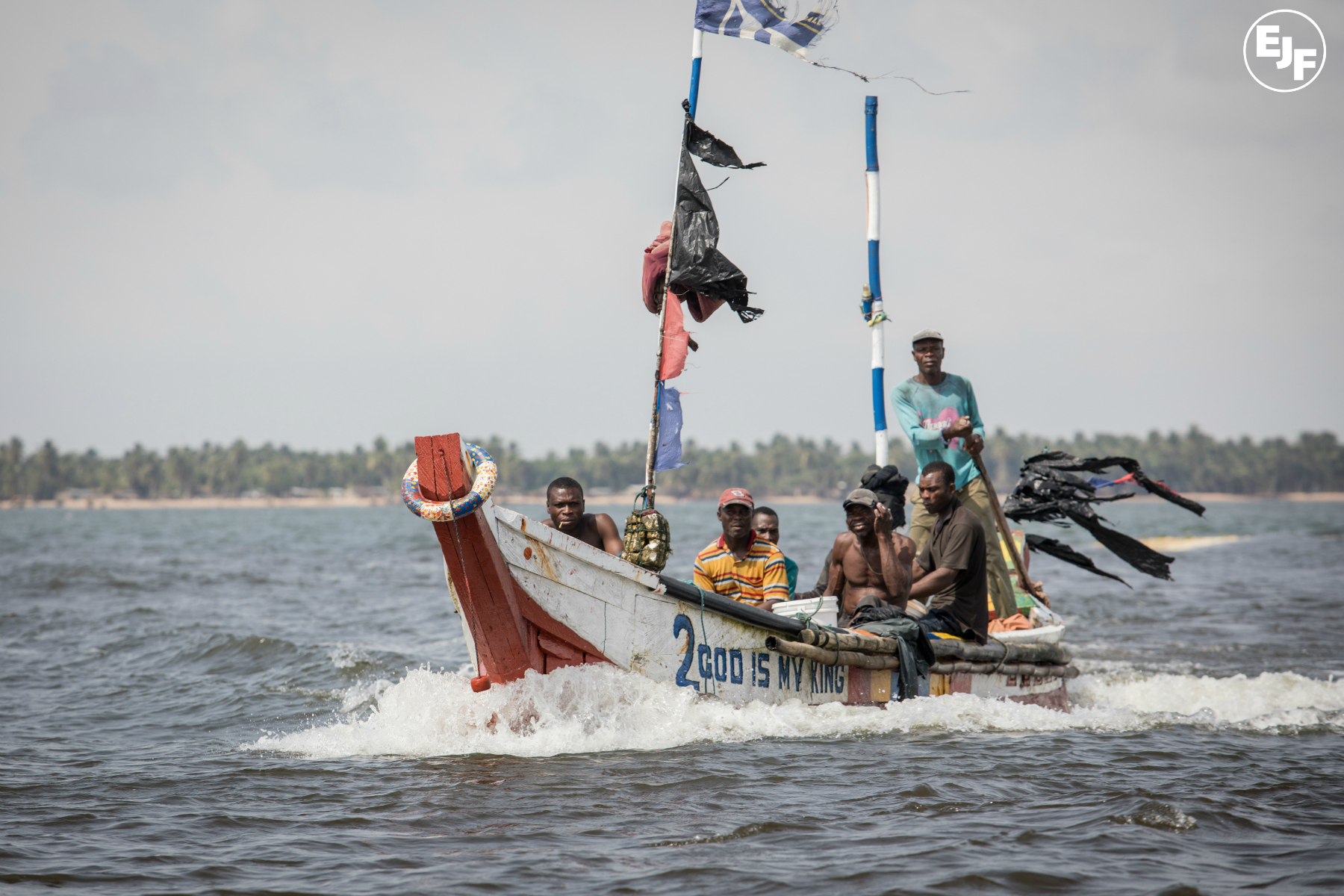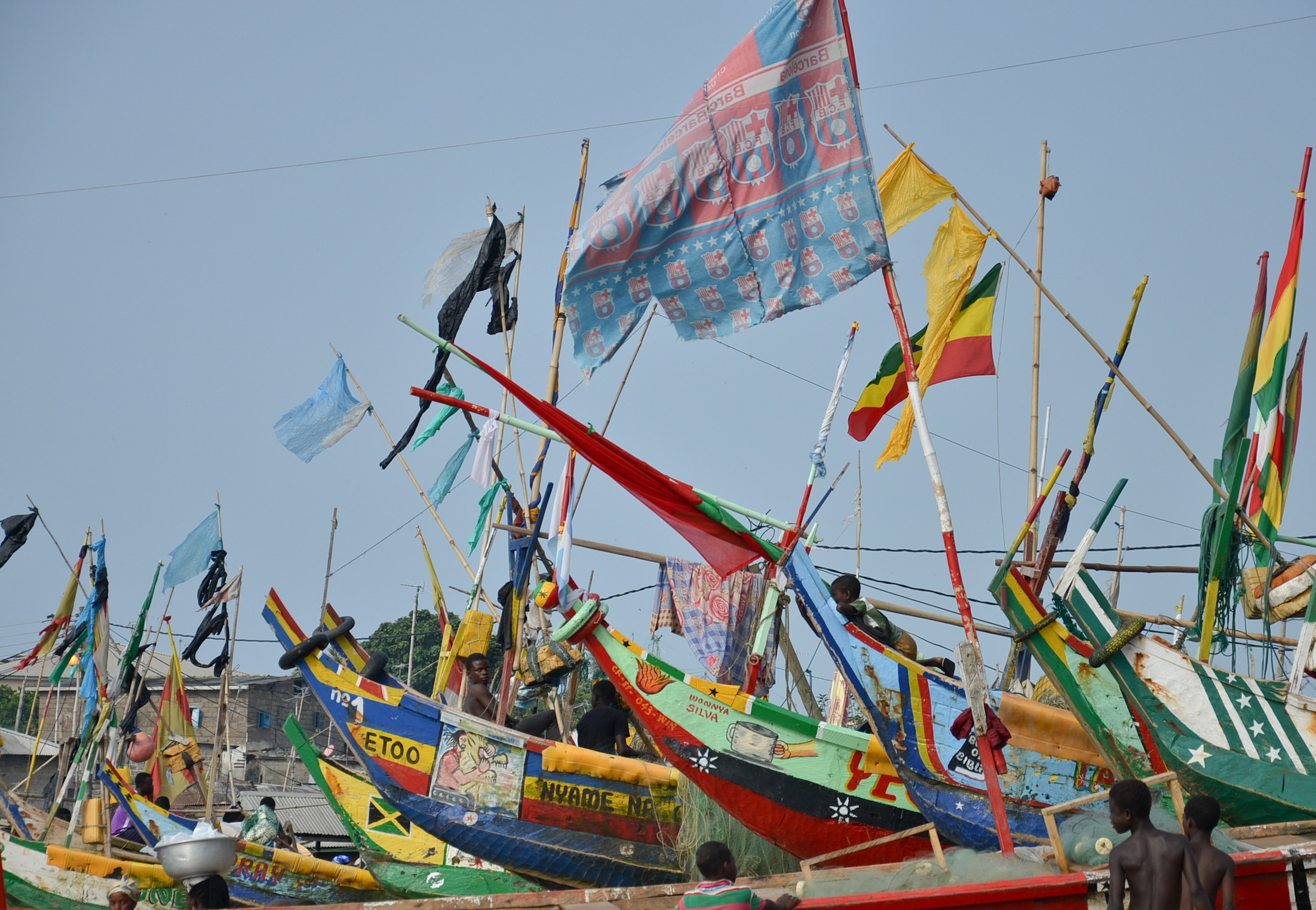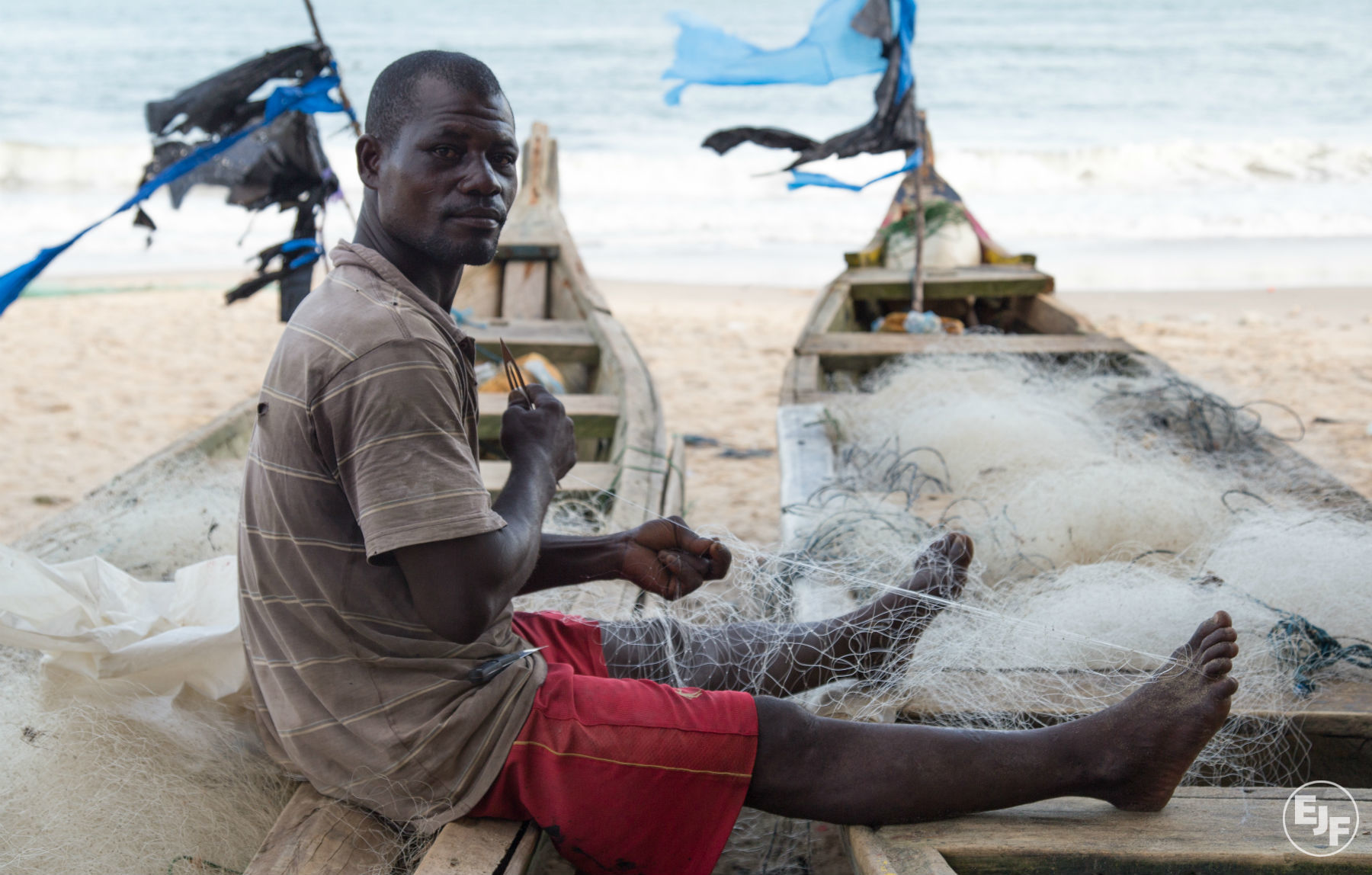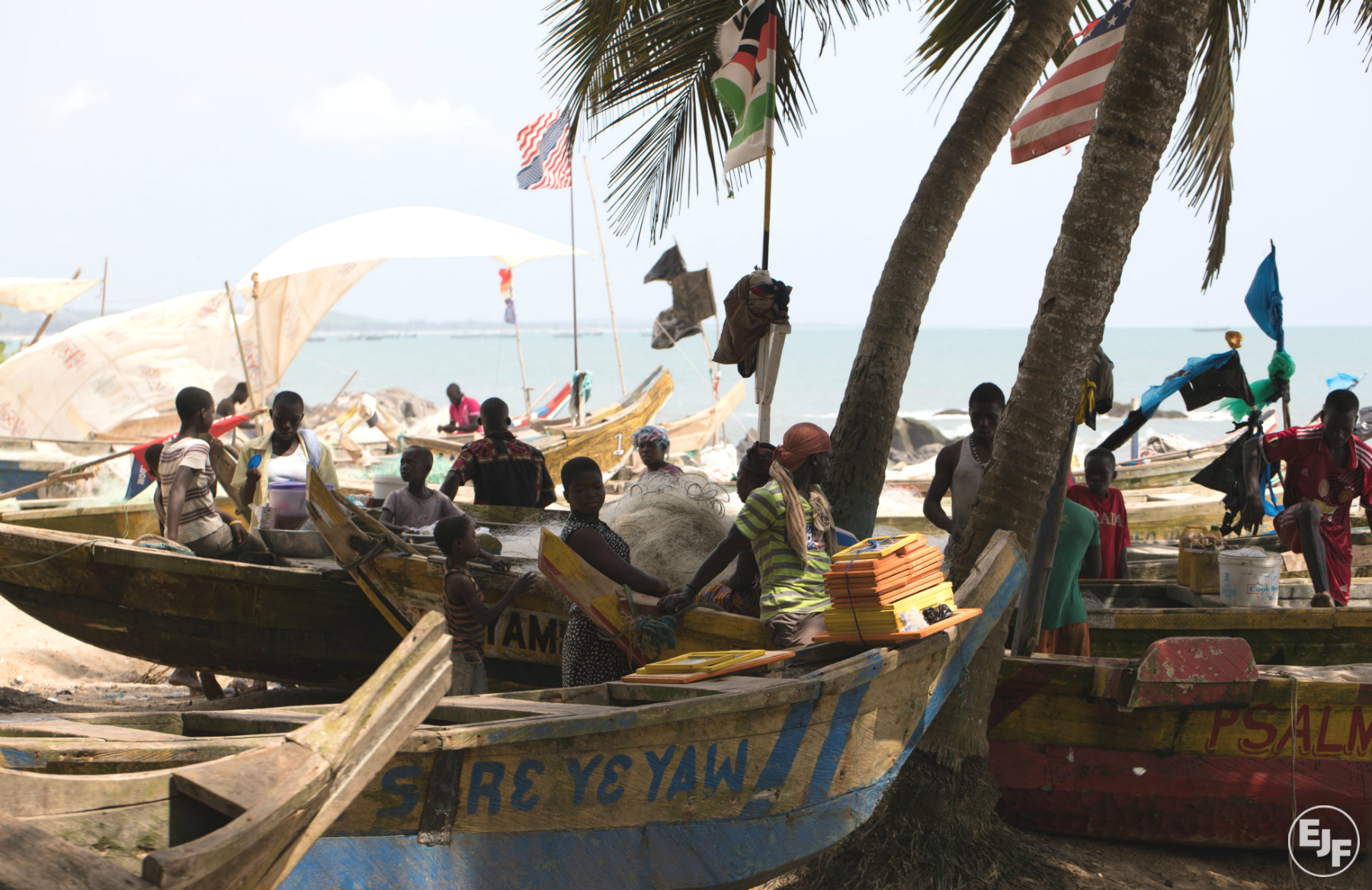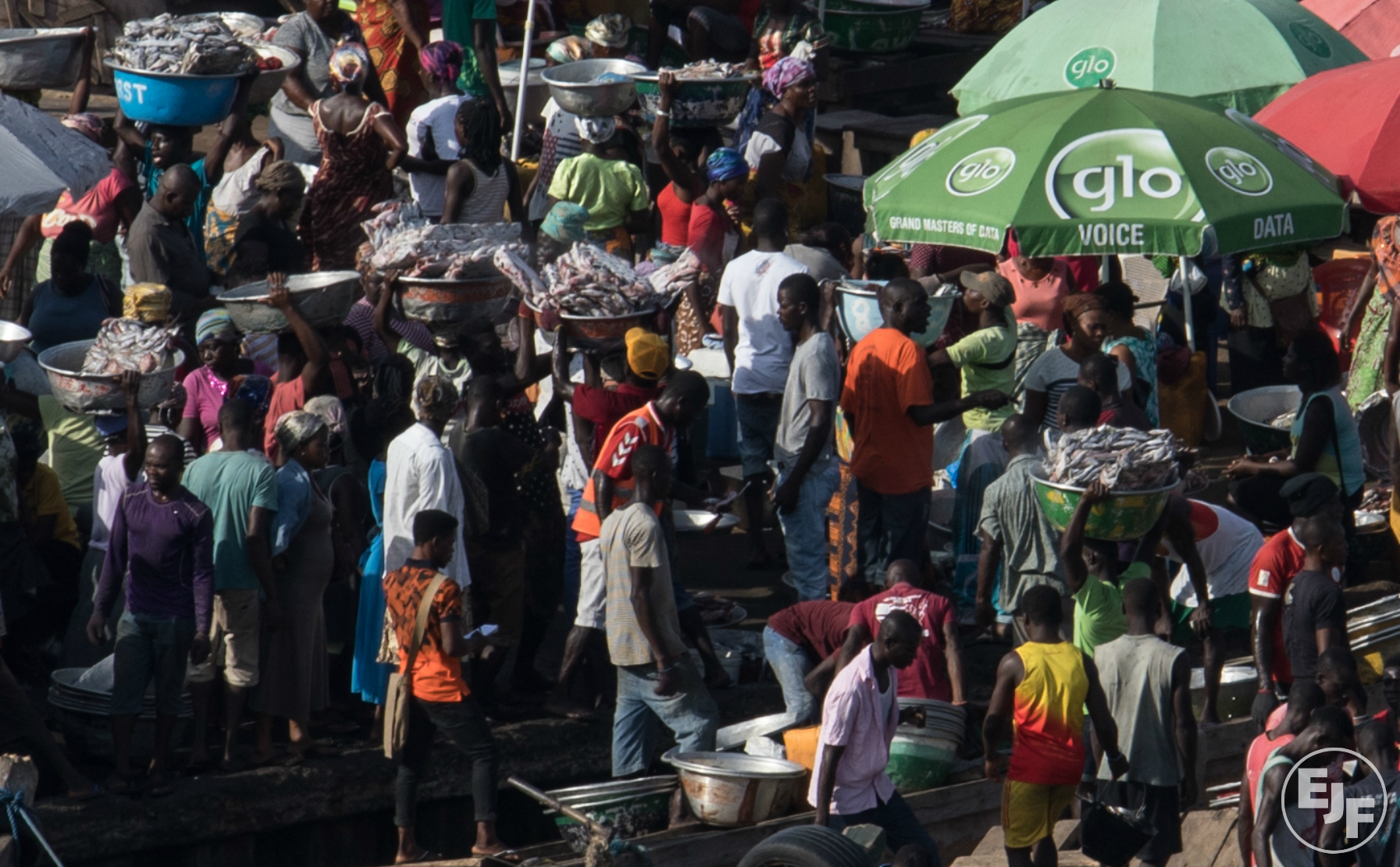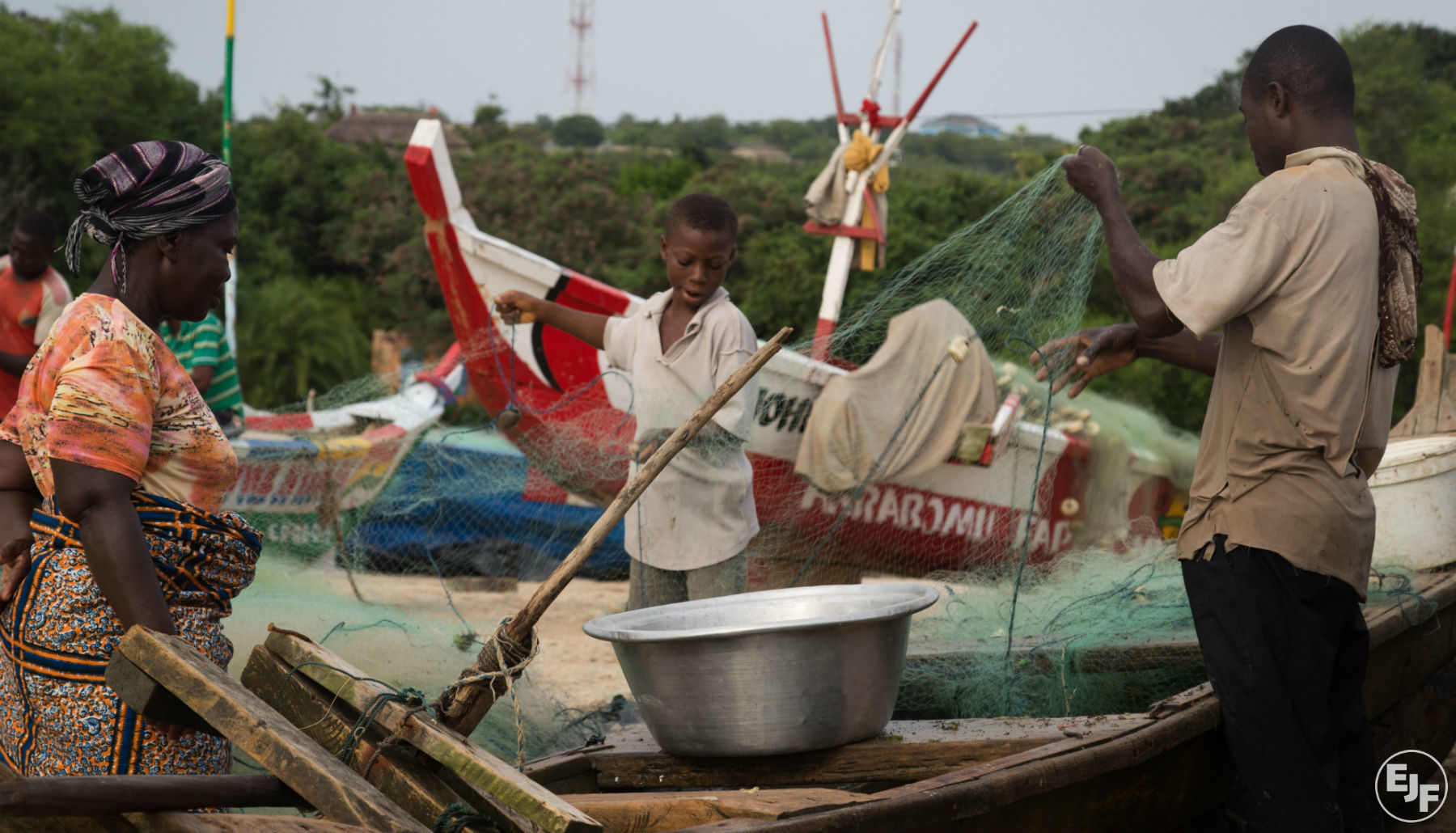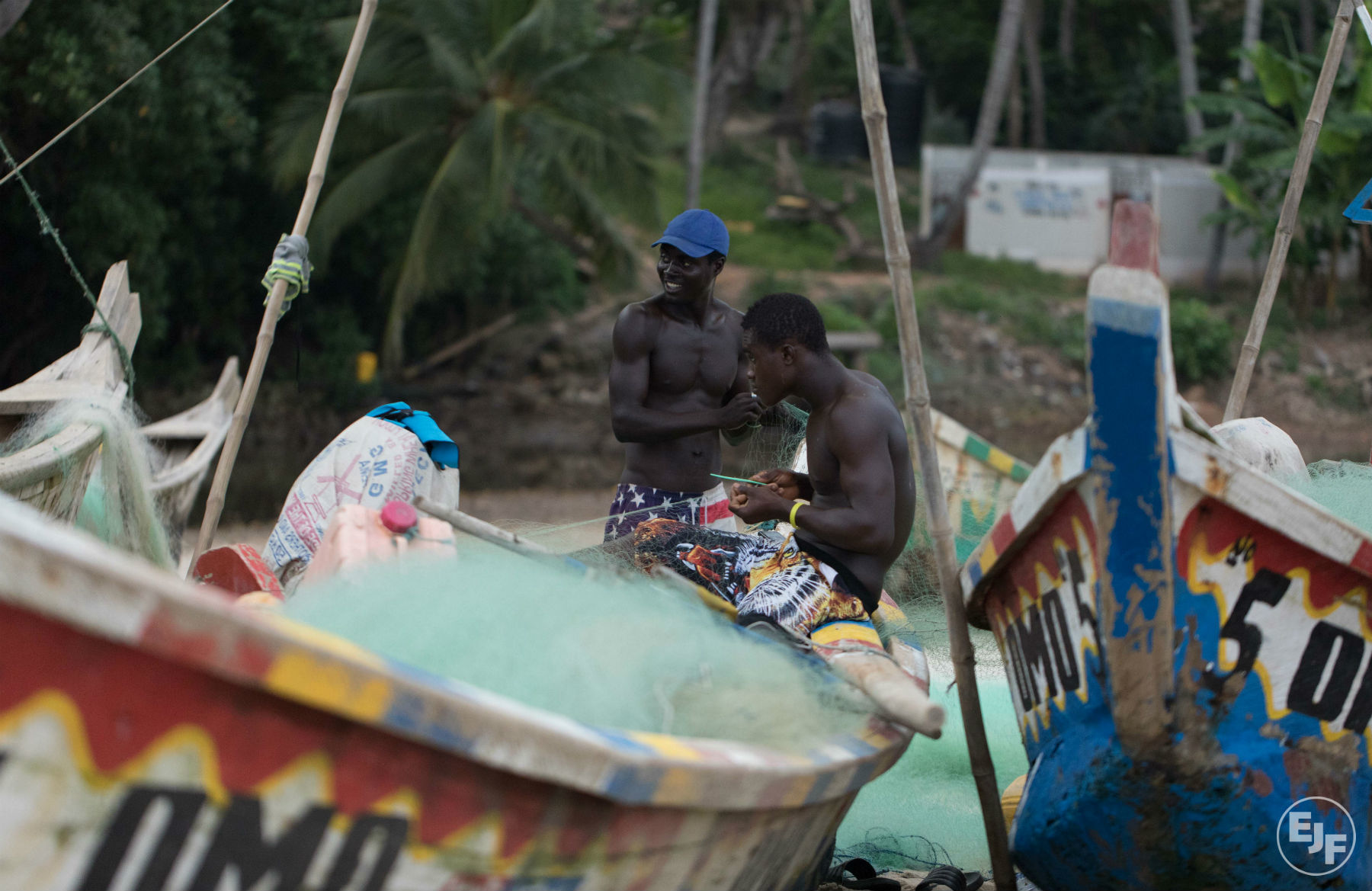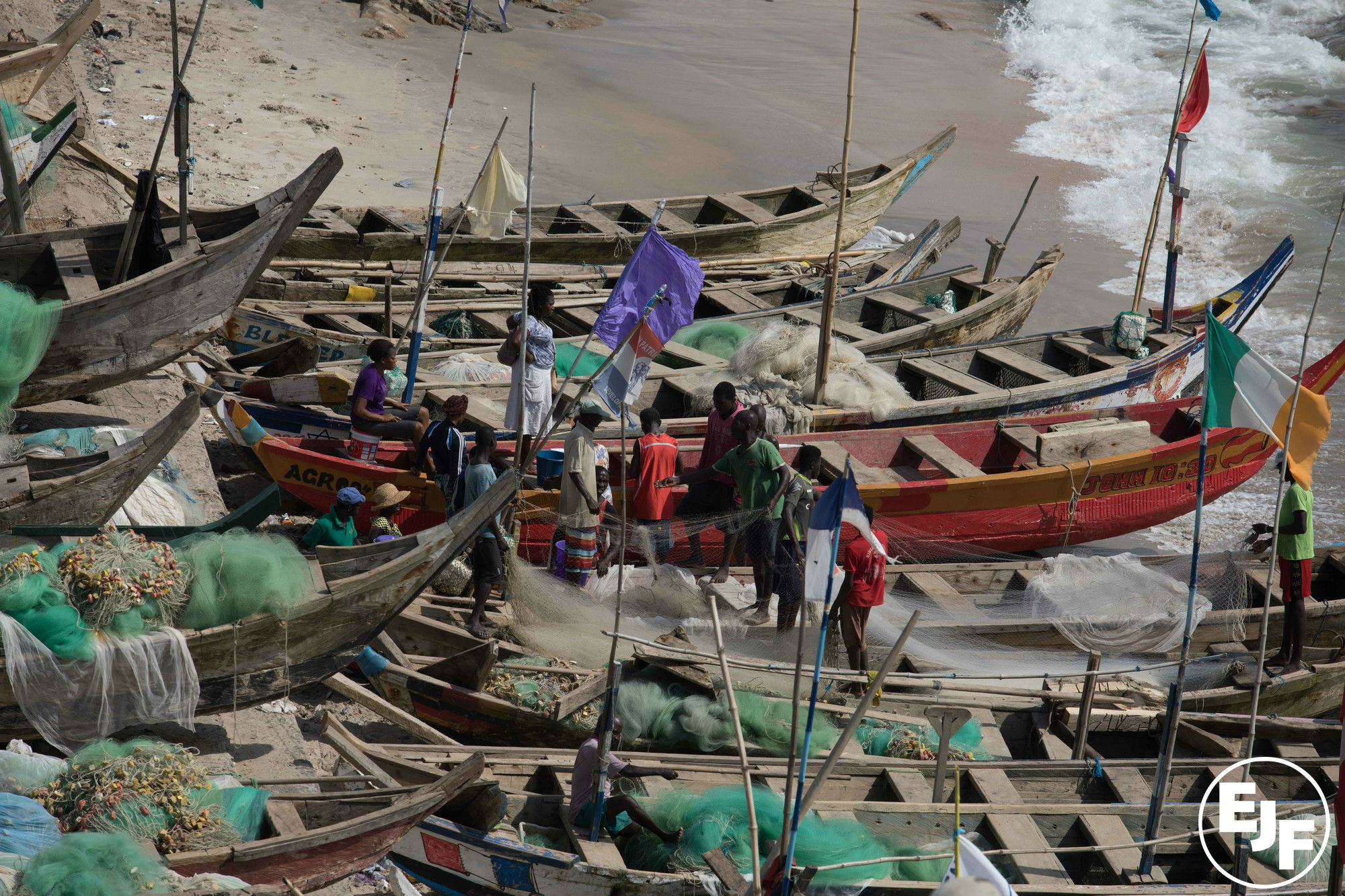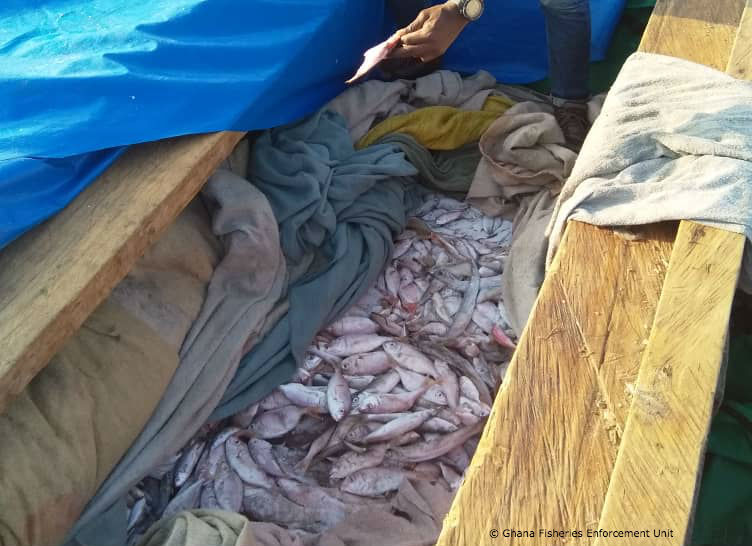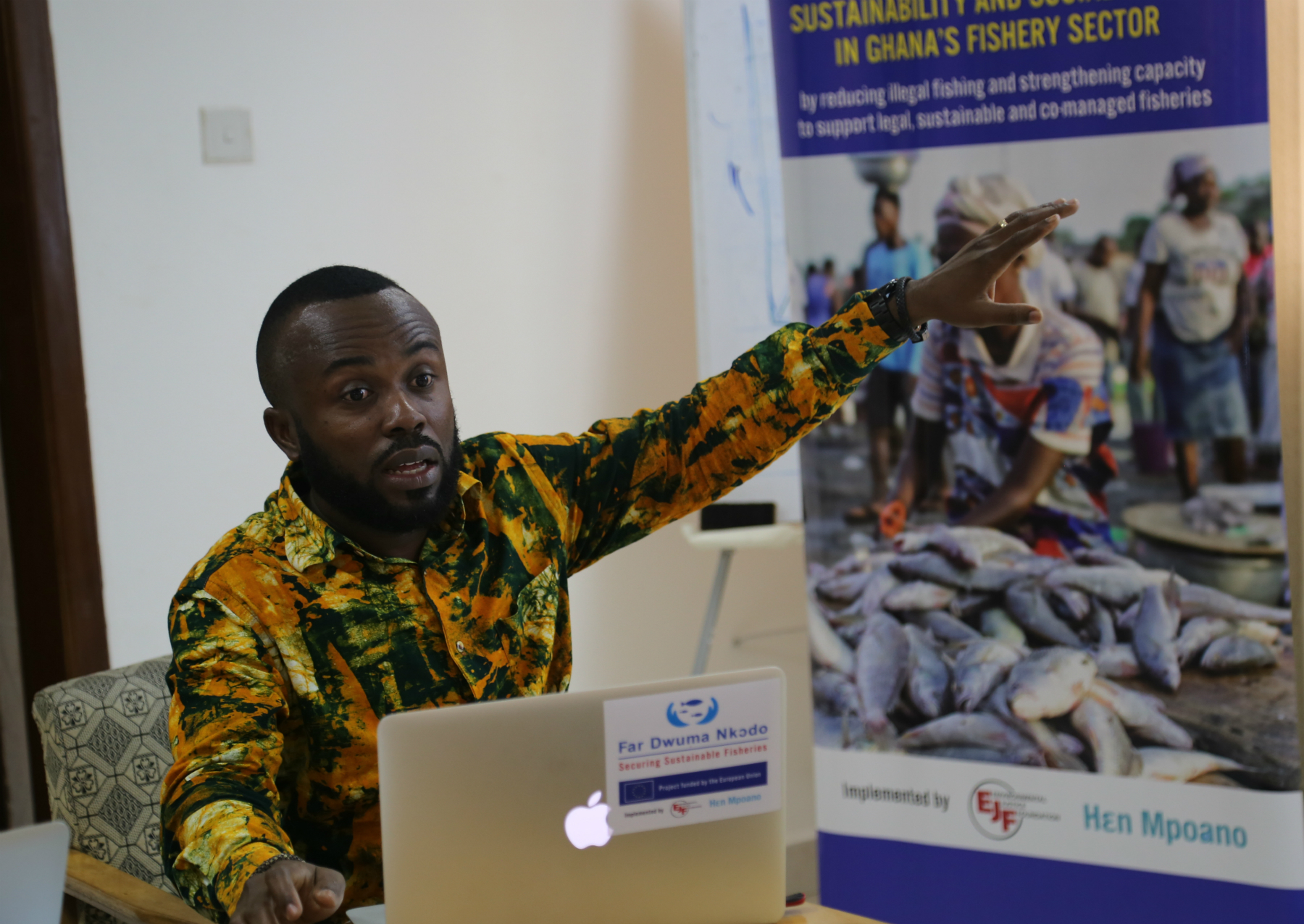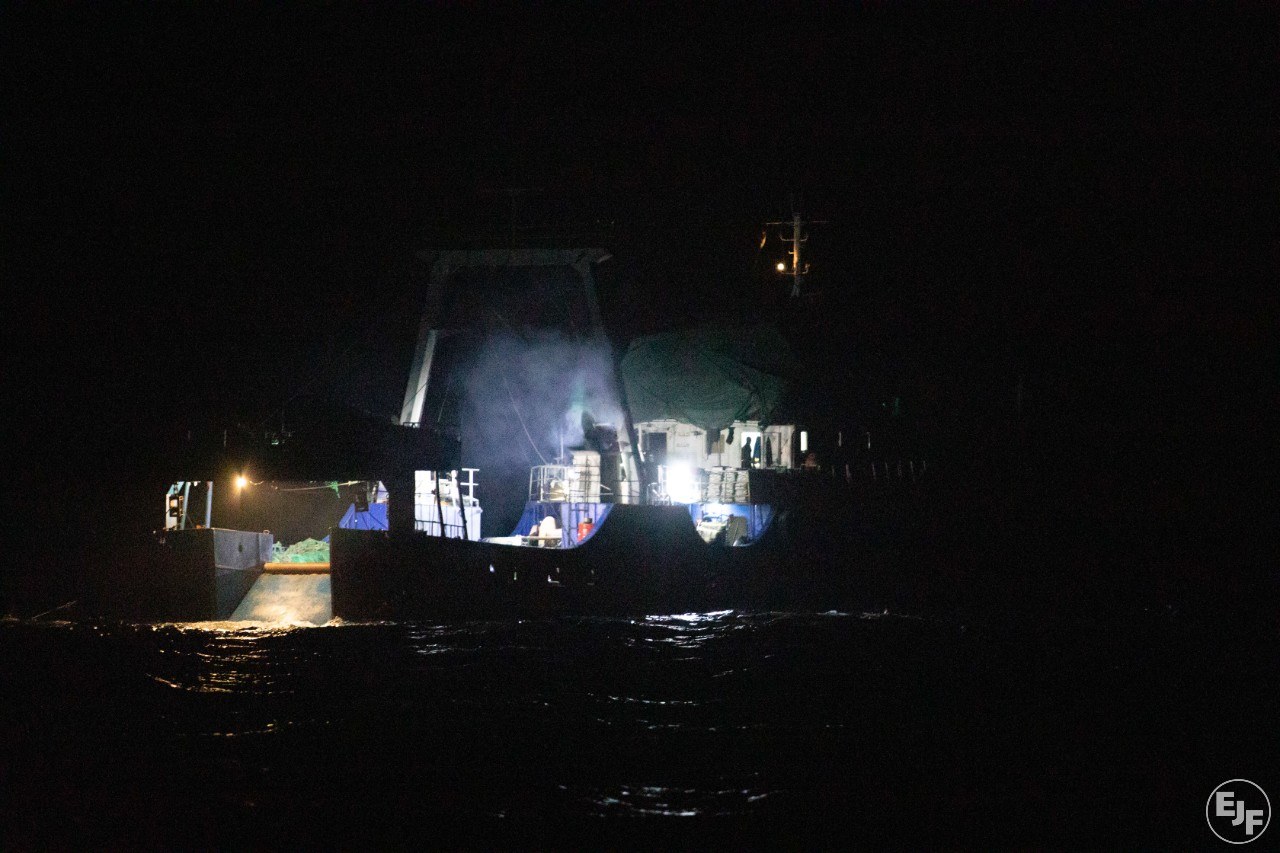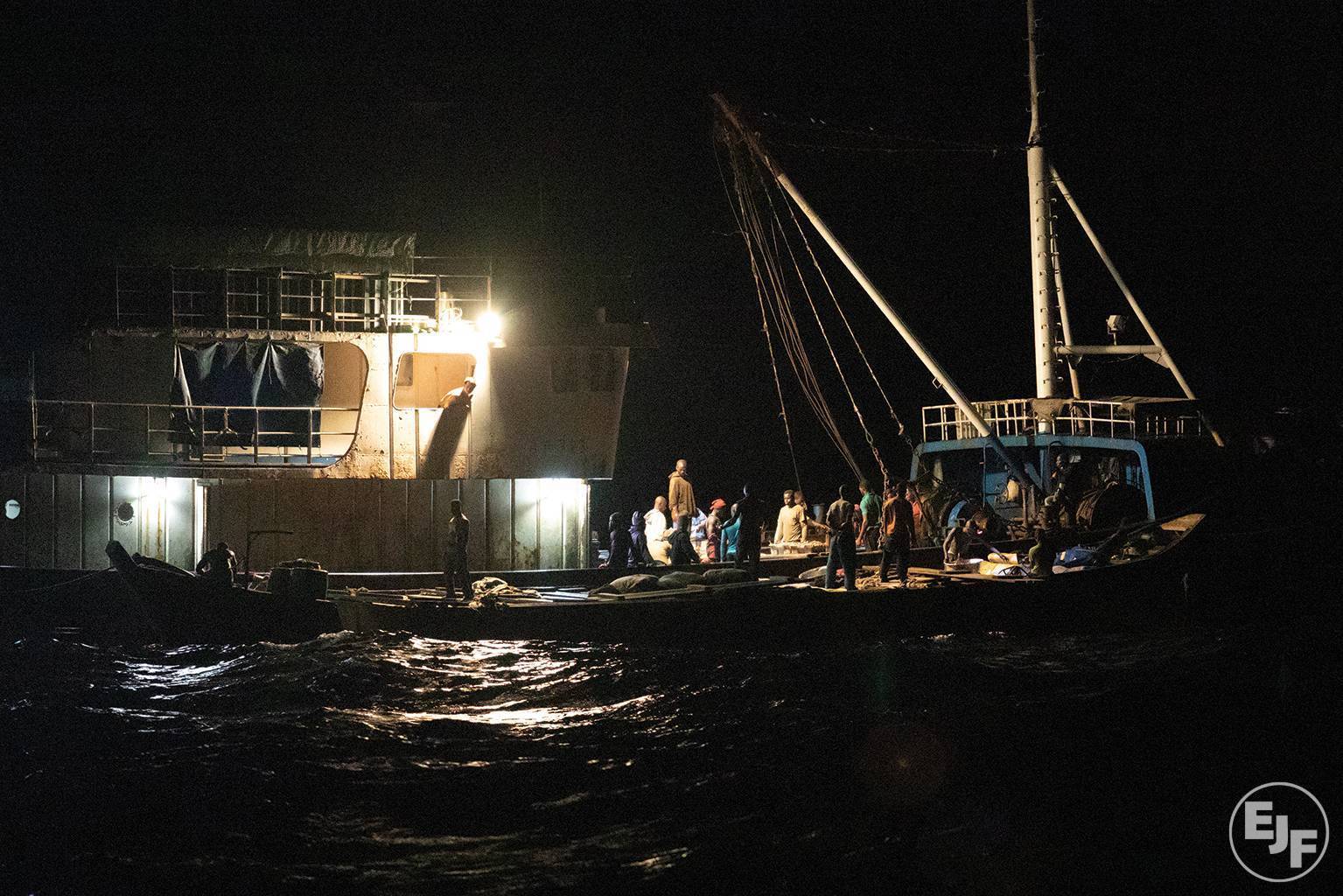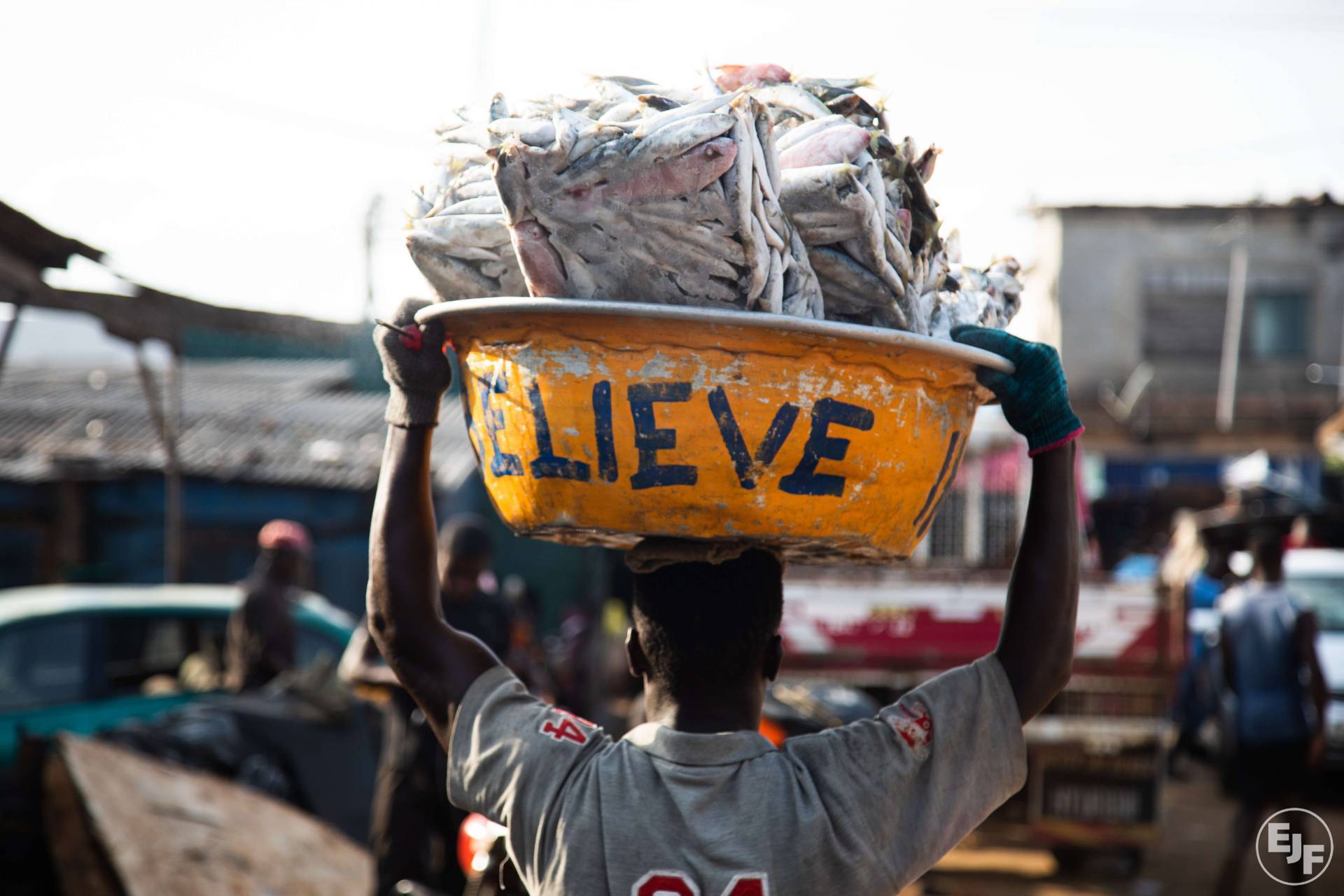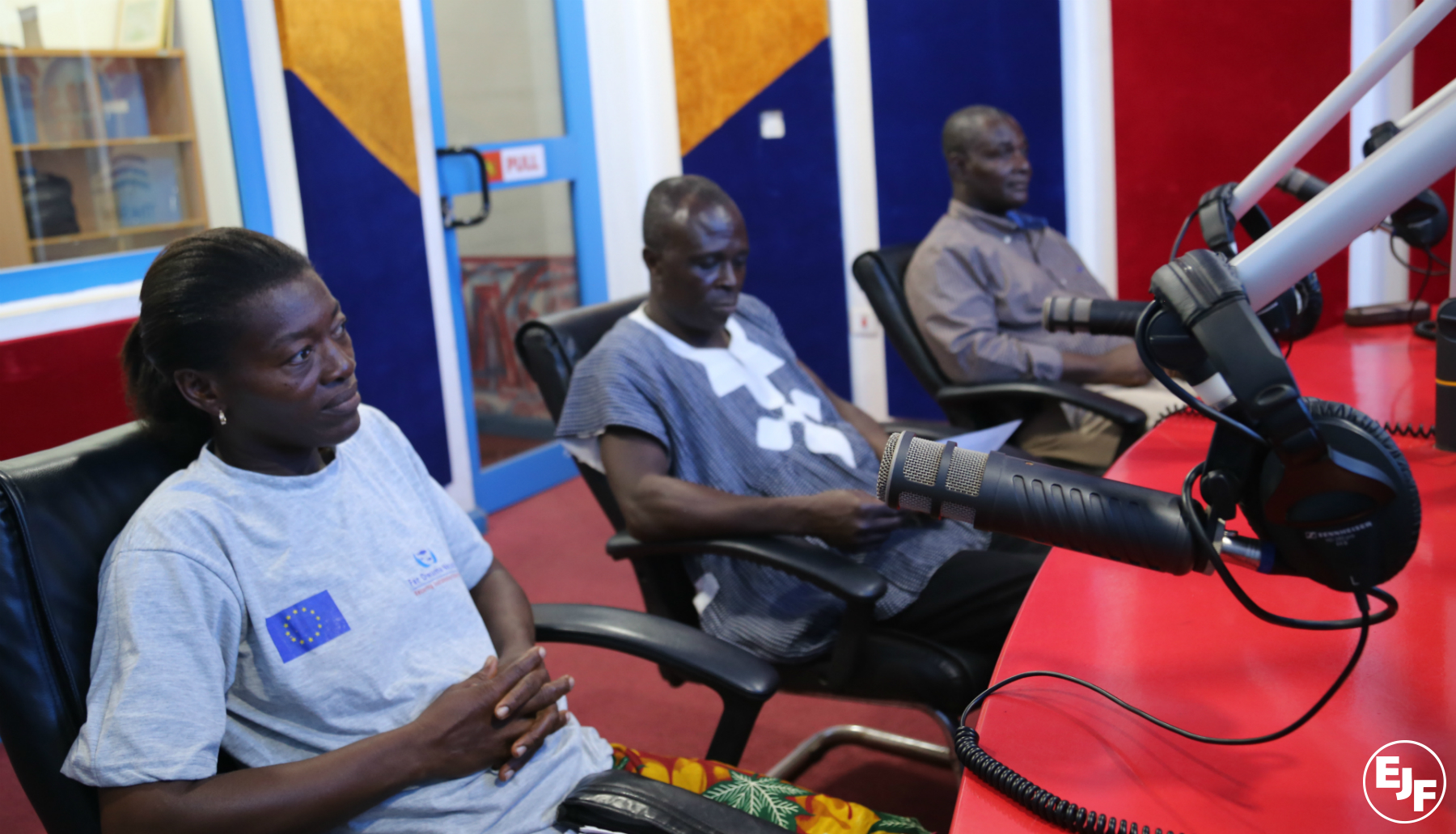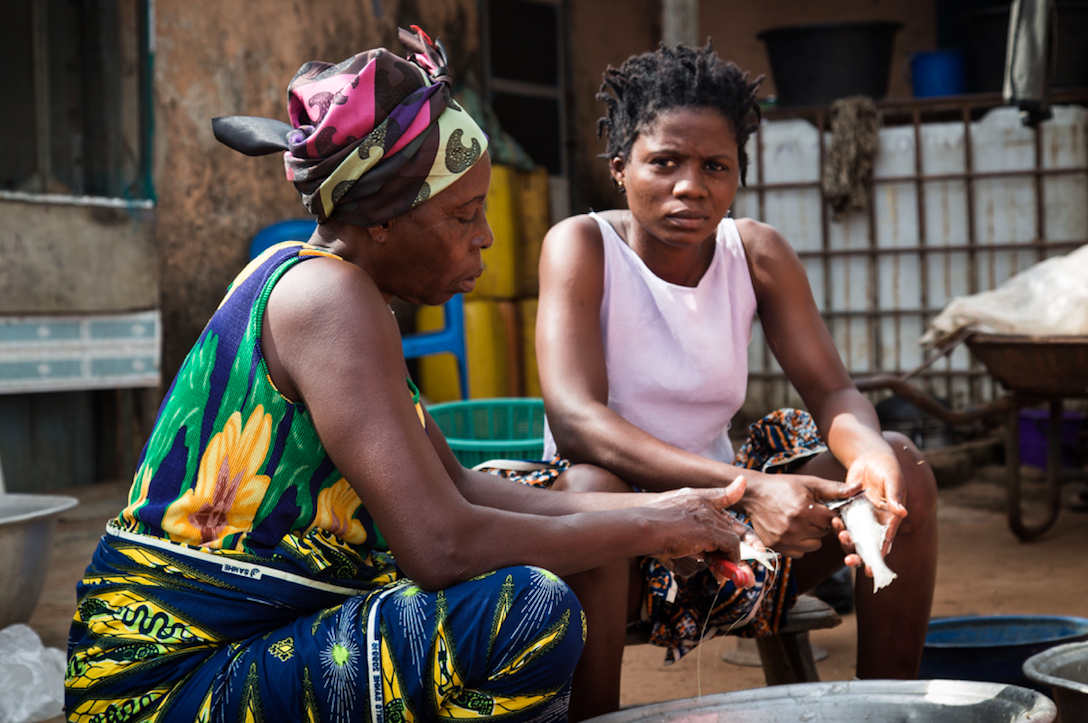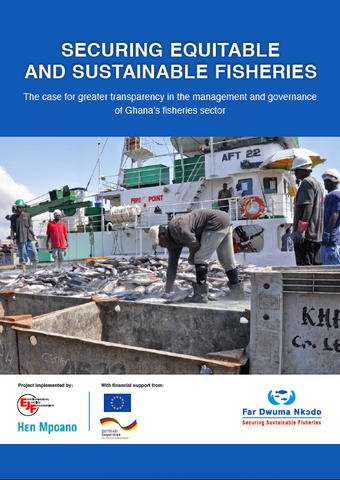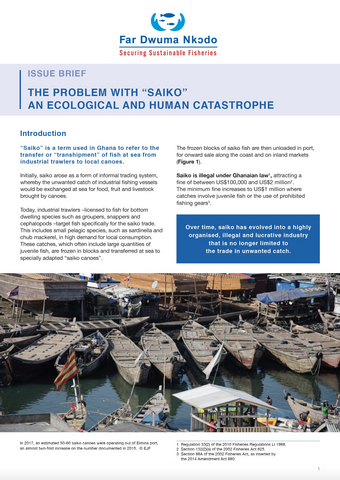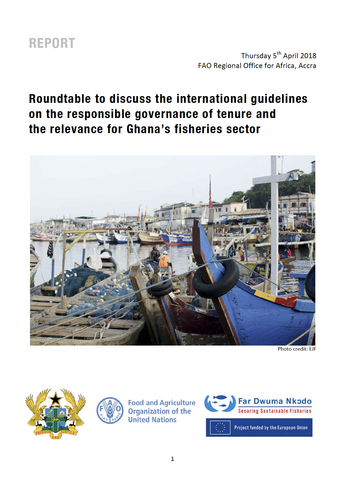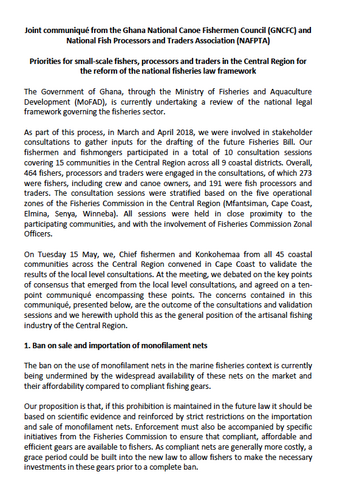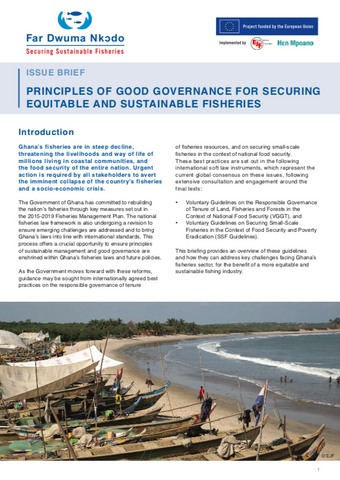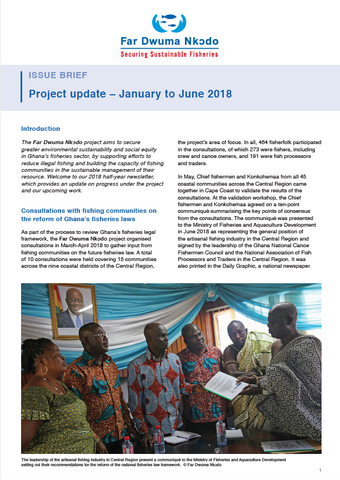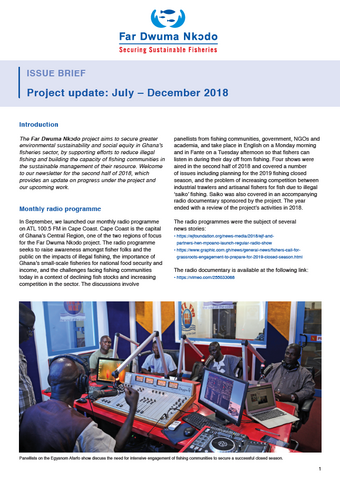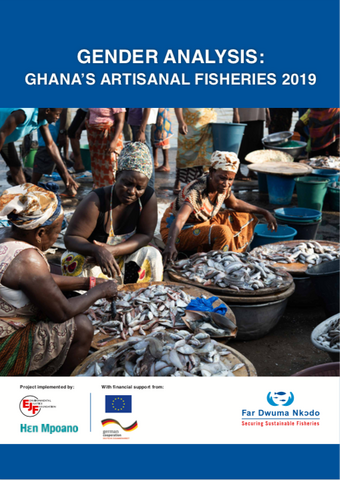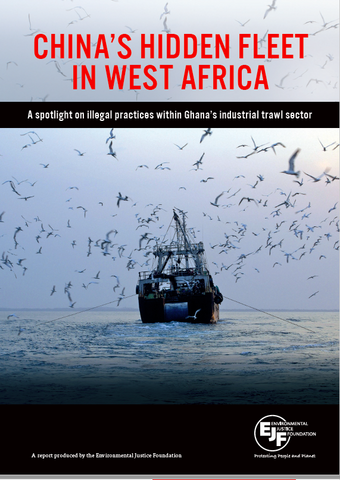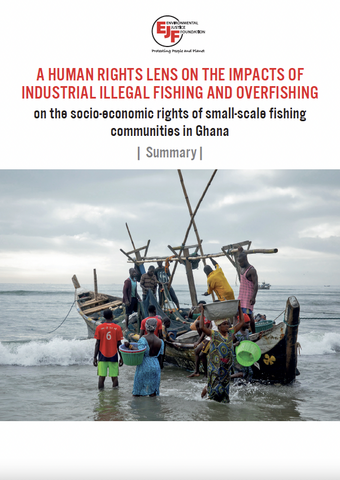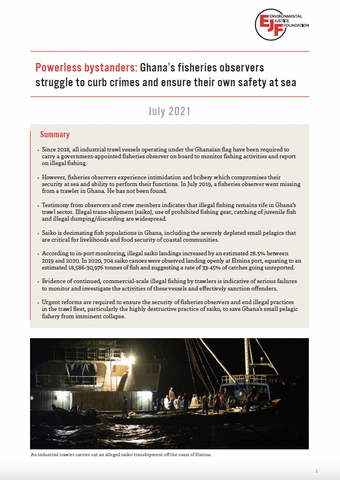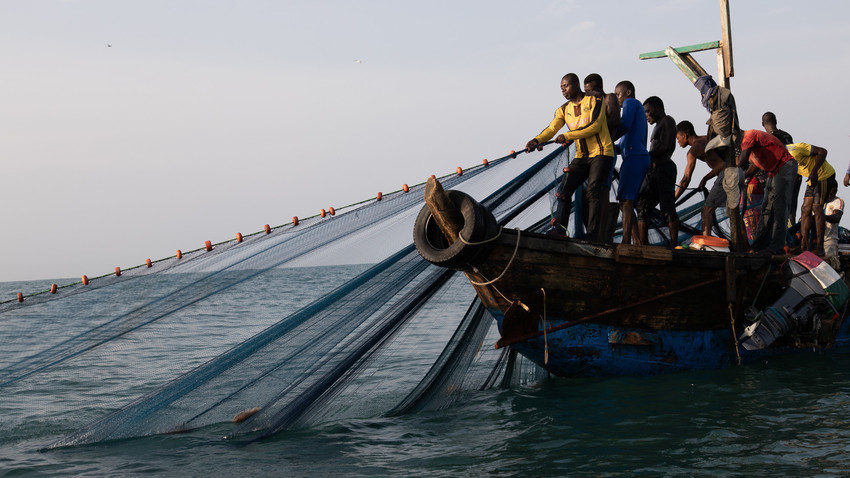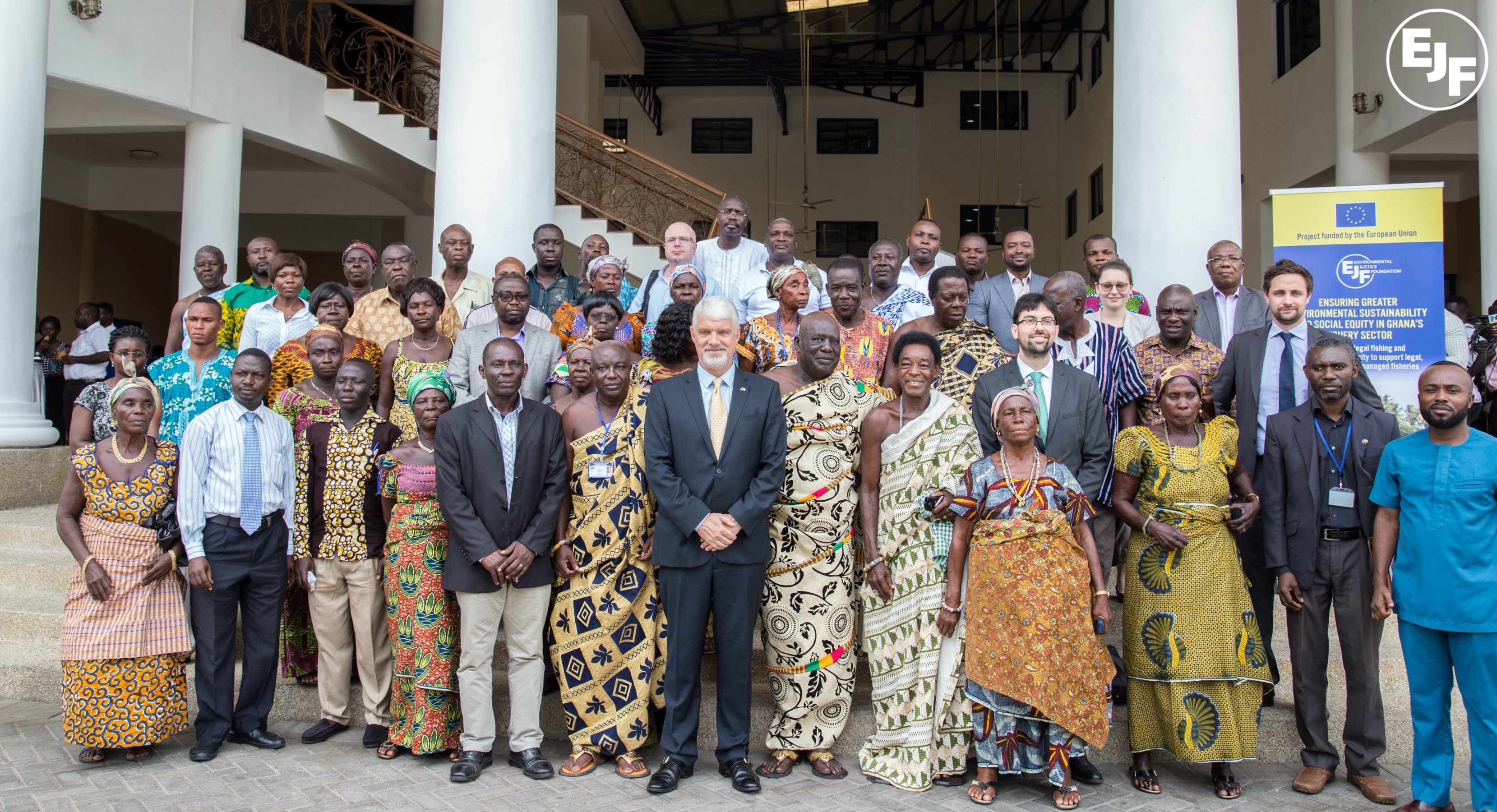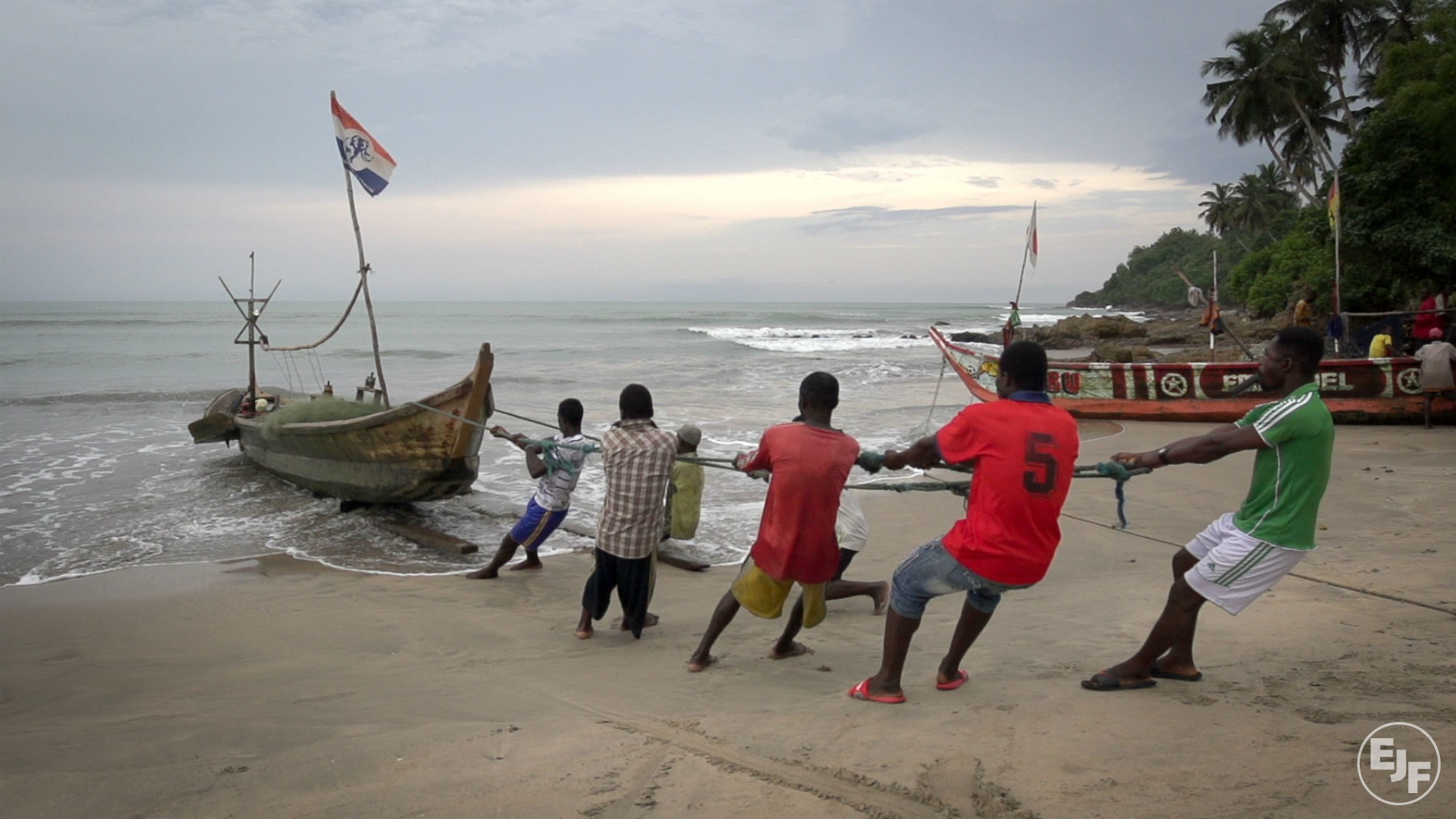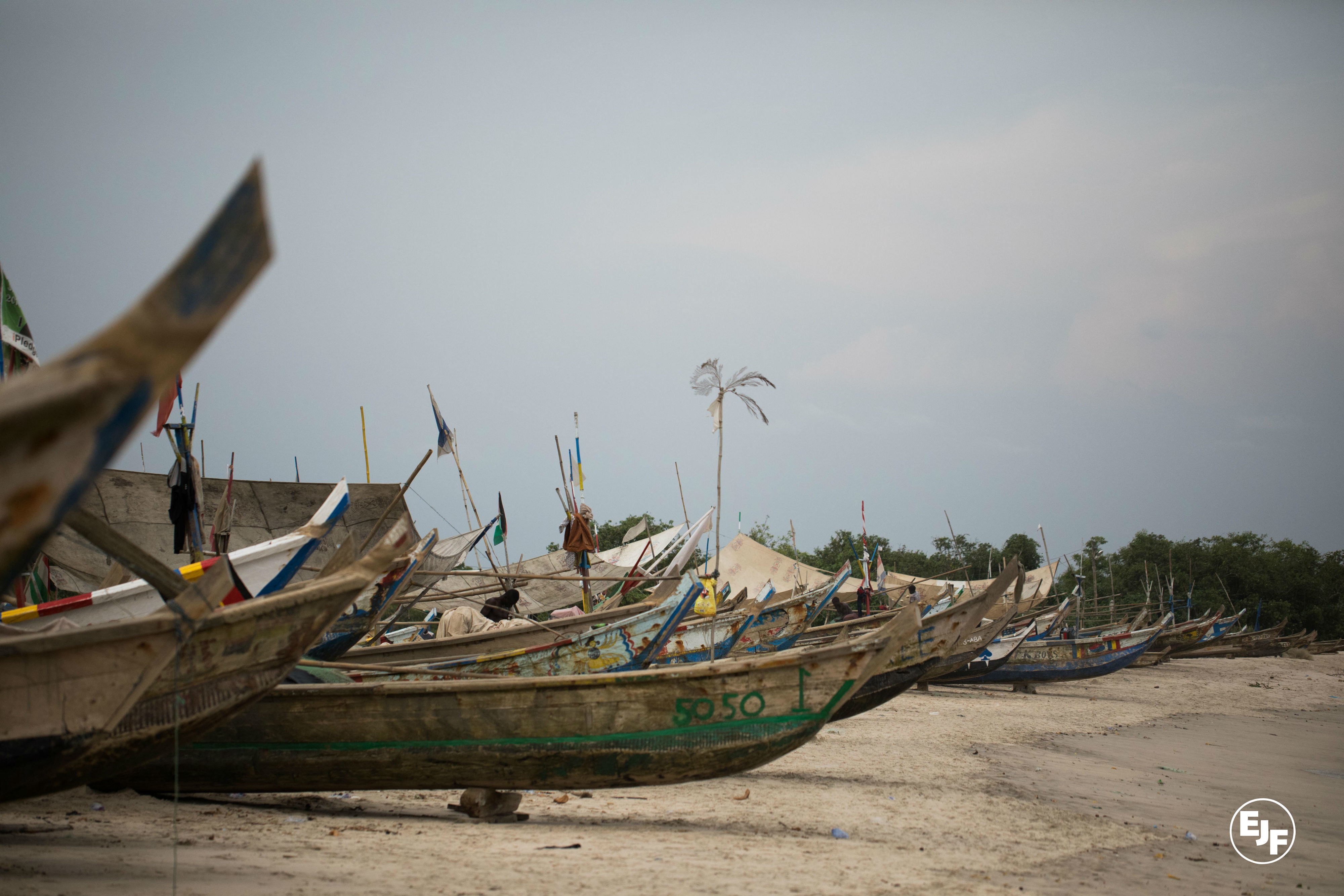Illegal fishing is devastating our ocean and West Africa is at the heart of this crisis. Around 37% of all fish caught in the region is done so illegally. Ghana is reliant on the fishing industry. It brings over US$500 million into the country every year and employs over 2.7 million people.
As industrial vessels pillage Ghana’s coastline of vital fish populations, it is the country’s small-scale fishing communities who are paying the price. Landings of some key species have declined by as much as 80% over the past two decades. Now, faced with declining incomes and food insecurity, many of these fishers are being driven to engage in illegal activities themselves.
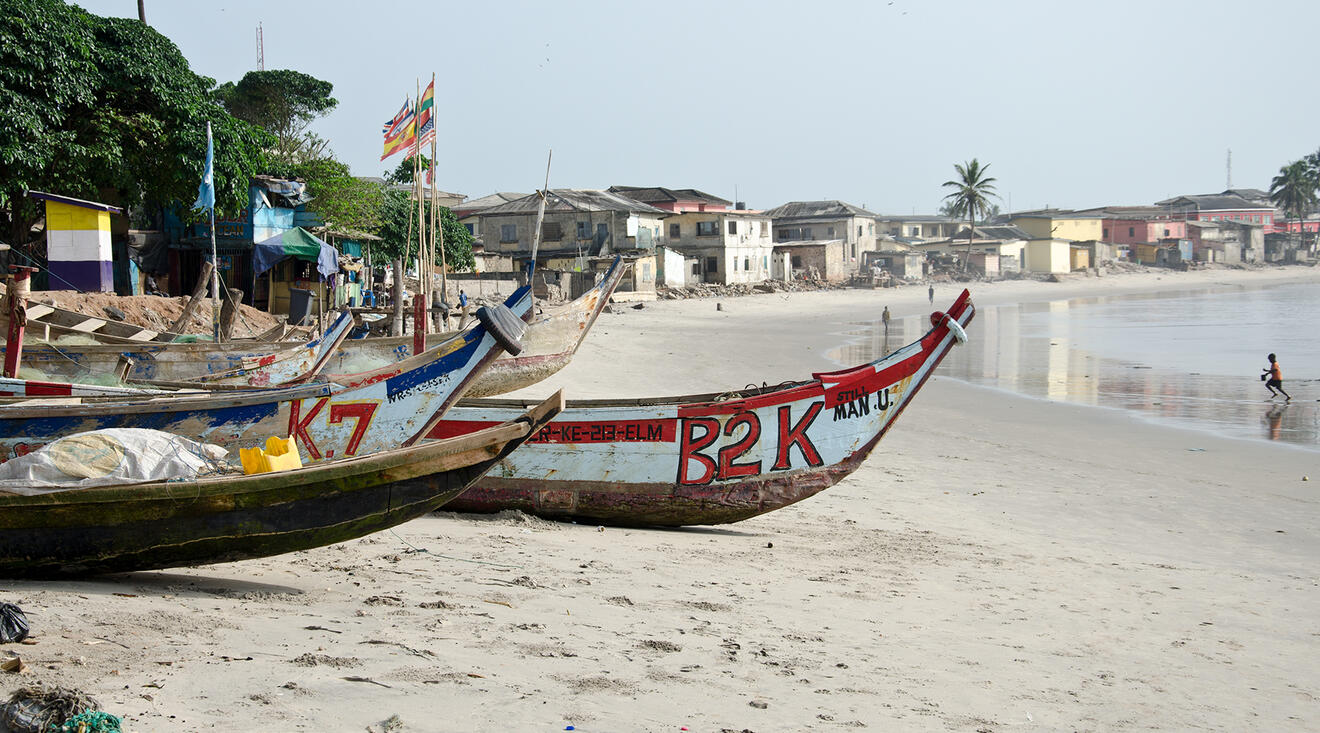
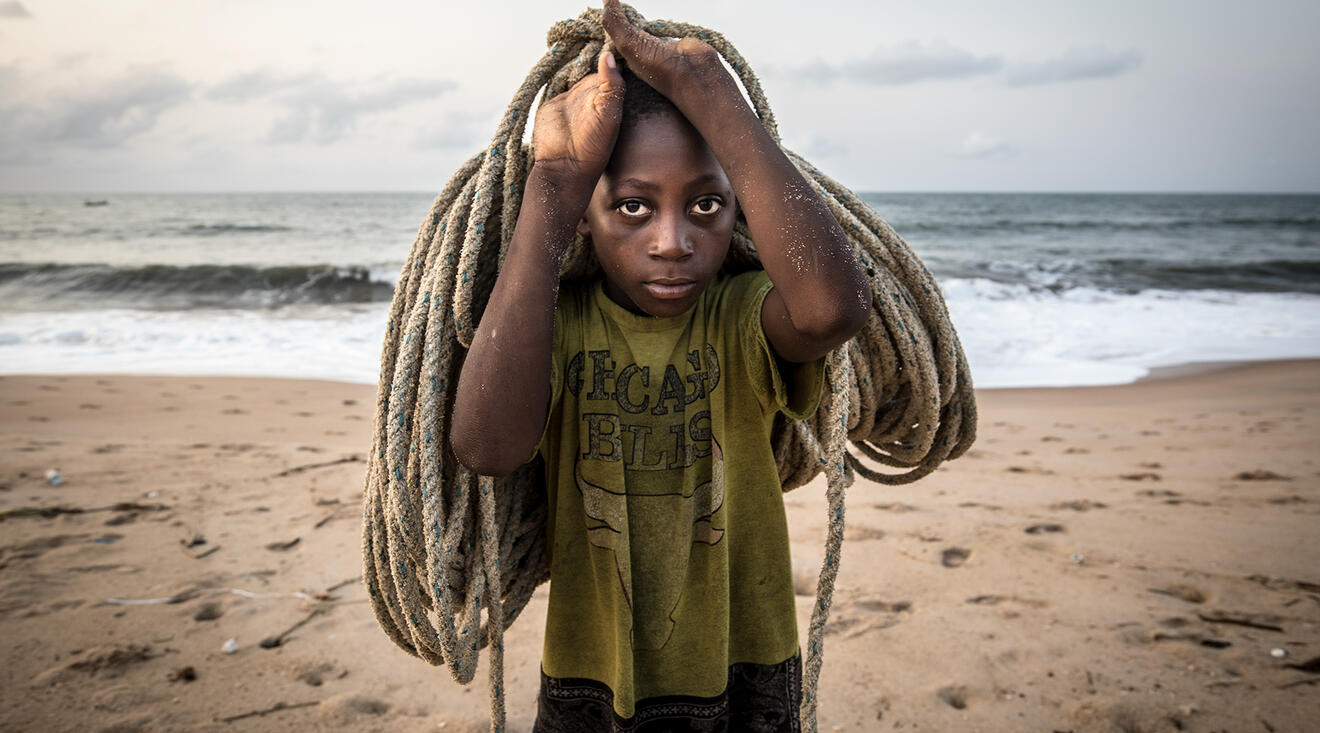
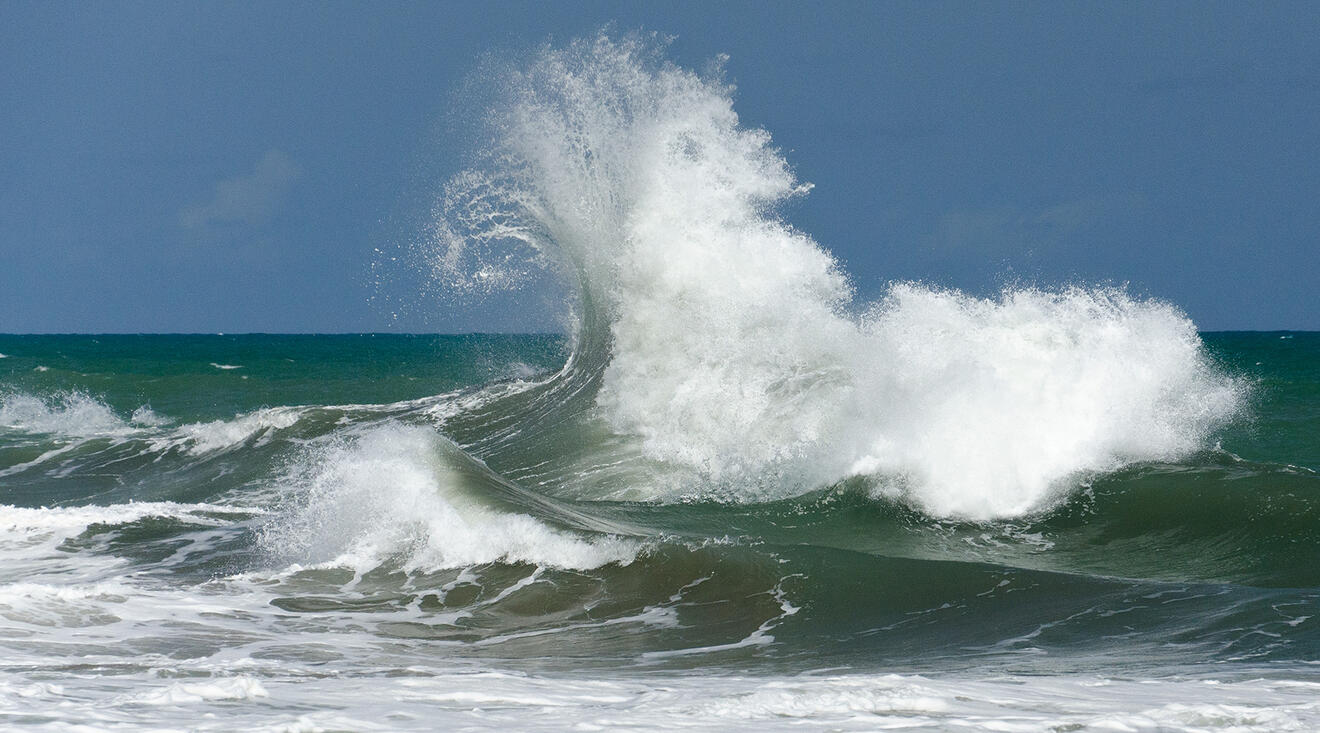
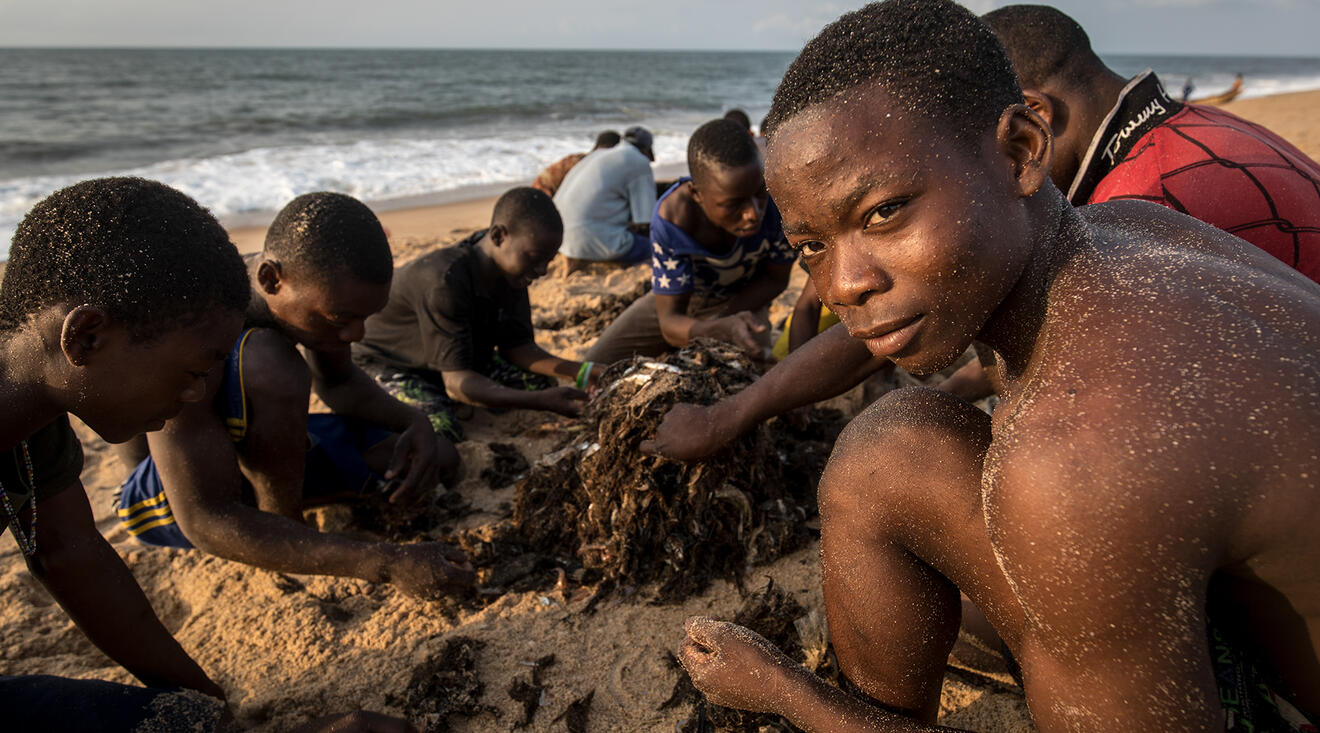
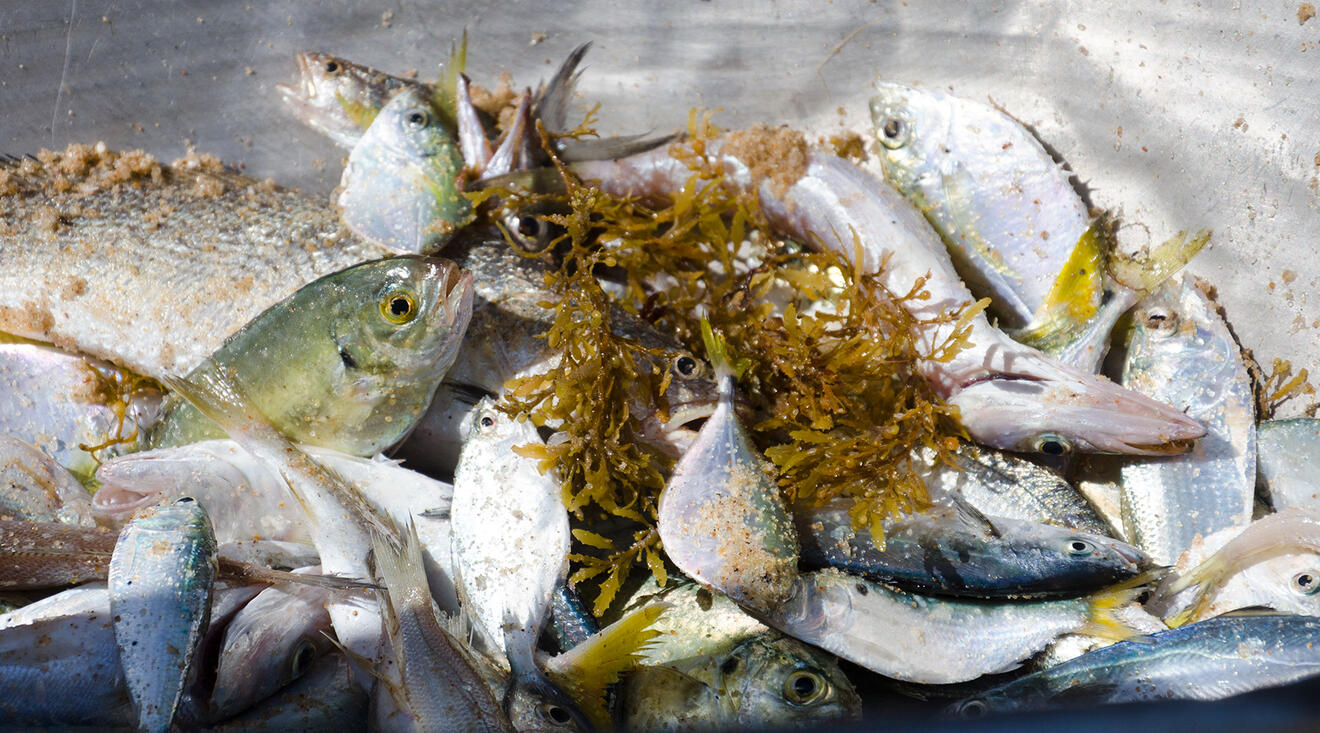
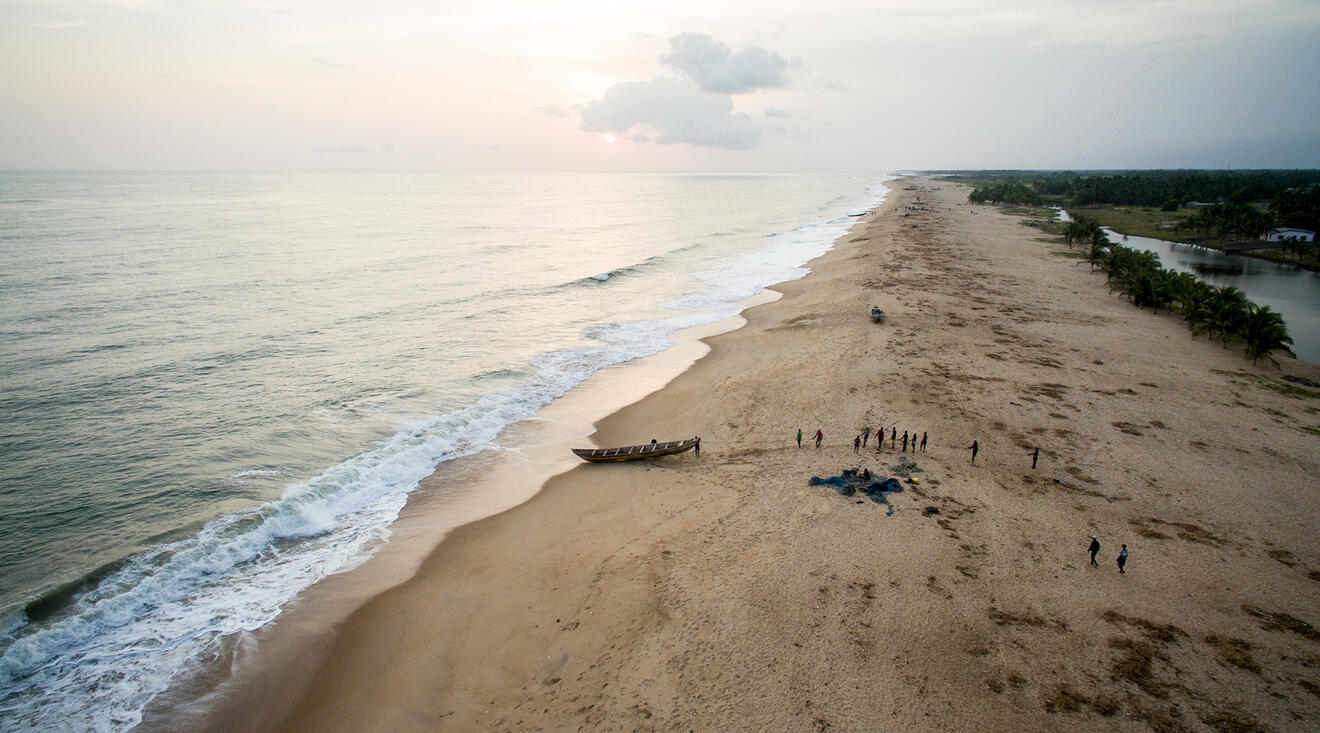
Securing sustainability and social equity
Since January 2017, EJF has been working in Ghana to secure healthy, sustainable fisheries. Through the implementation of several key projects, EJF is working to help drive a reduction in illegal fishing, and give local fishers a voice in processes to build a more sustainable fishing sector:
EJF uses our unique combination of local surveillance and remote monitoring to strengthen the monitoring and reporting of illegal fishing, empowering local communities to document illicit fishing activities and improve the sustainability of Ghana’s fisheries.
EJF empowers small-scale fishers, vulnerable and marginalised groups to articulate their interest in fisheries reforms and implement fisheries co-management.
EJF is promoting alternative livelihood options for small-scale fishing communities, helping to diversify local economies and to reduce dependence on fishing.
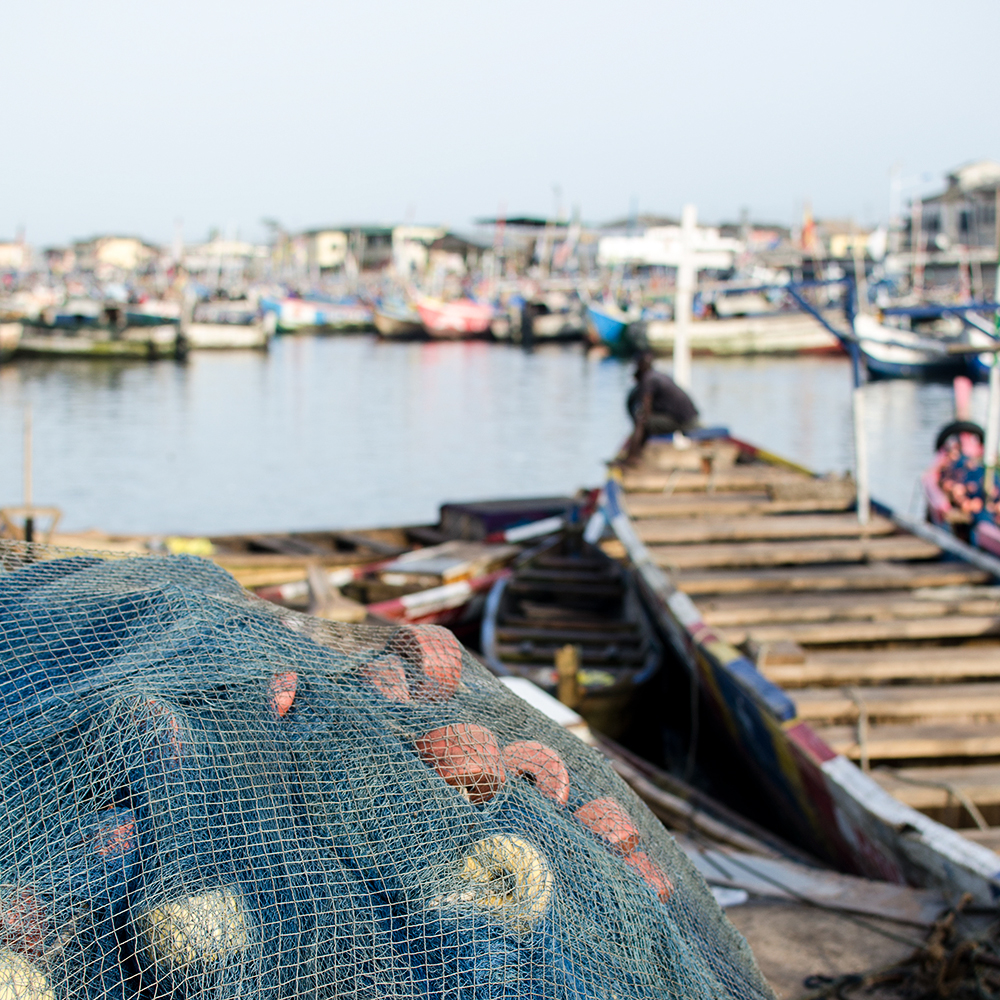
Saiko has destroyed our ocean. It is worrying because the trawlers catch all the fishes meant to be caught by our husbands and use it for saiko. Government must support coastal communities by stopping saiko because we are really suffering.
Ekua Kokuwa, Fishmonger at Ankaful
Working with local fishing communities
EJF is working with local partners to improve the livelihoods of local fishers and promote food security across Ghana. We’ve worked with over 48 coastal communities across the coastal districts in Ghana’s Central, Greater Accra and Volta regions in a bid to safeguard marine resources for current and future generations of local fisherfolk.
We empower coastal communities and local fishers to take a stand against illegal fishing activities, providing the much needed evidence for the government to take action against these illegal, unreported and unregulated fishing practices; train local fishers to understand and protect their rights in fisheries management; promote the fair allocation of tenure rights to protect fishers’ landing sites from the encroachment of tourism and other industrial activities; and identify and promote alternative livelihoods to help broaden fisher communities’ economic basis and support the long term sustainability of Ghana’s fish stocks.
of fish catch in West Africa is illegal, costing the region US$1 billion each year
Related Articles
Related Films
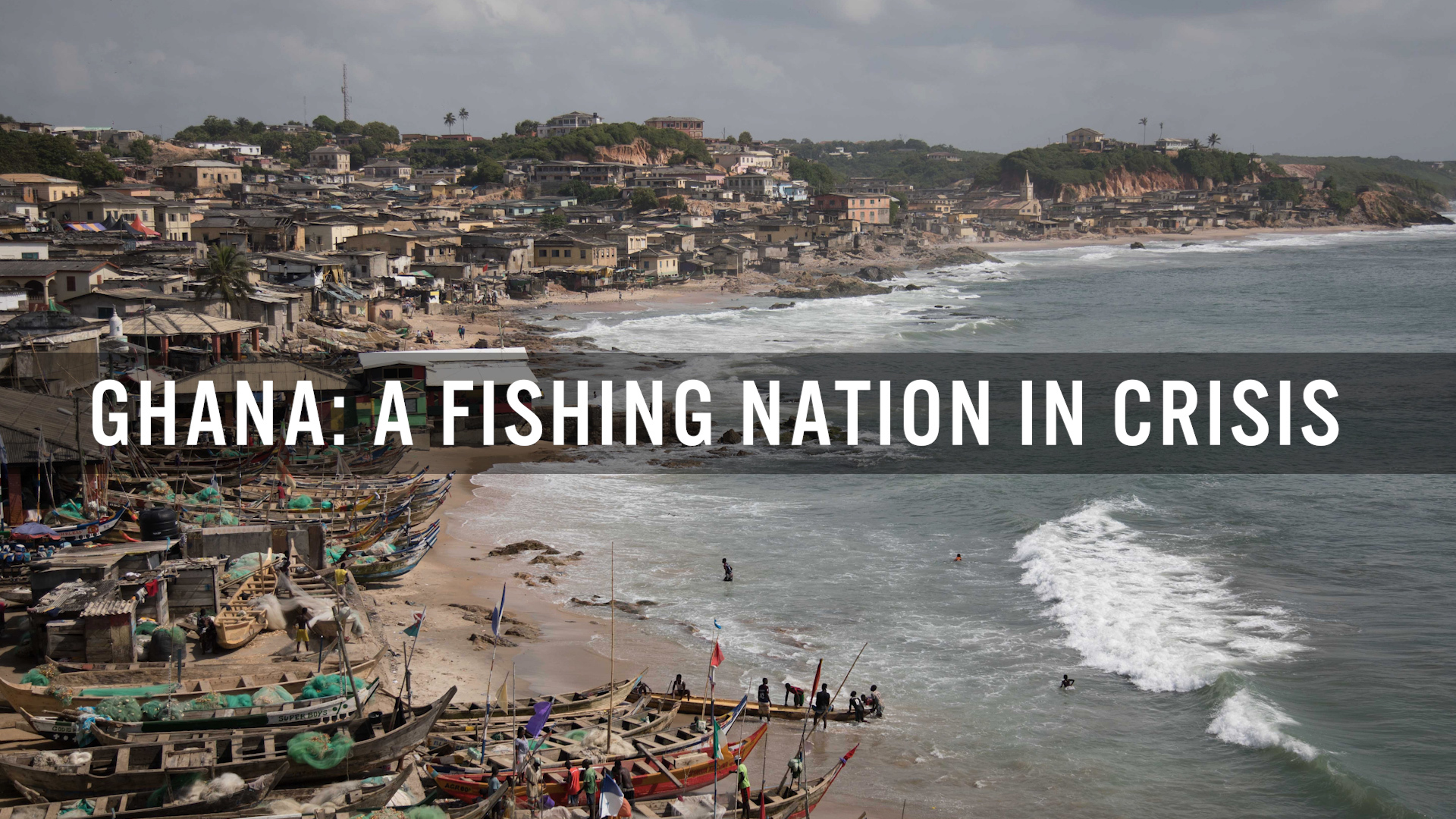
Ghana: A Fishing Nation in Crisis
Ghana: A Fishing Nation in Crisis
This film shows how IUU fishing and the illegal practice called saiko are devastating Ghana's fisheries.
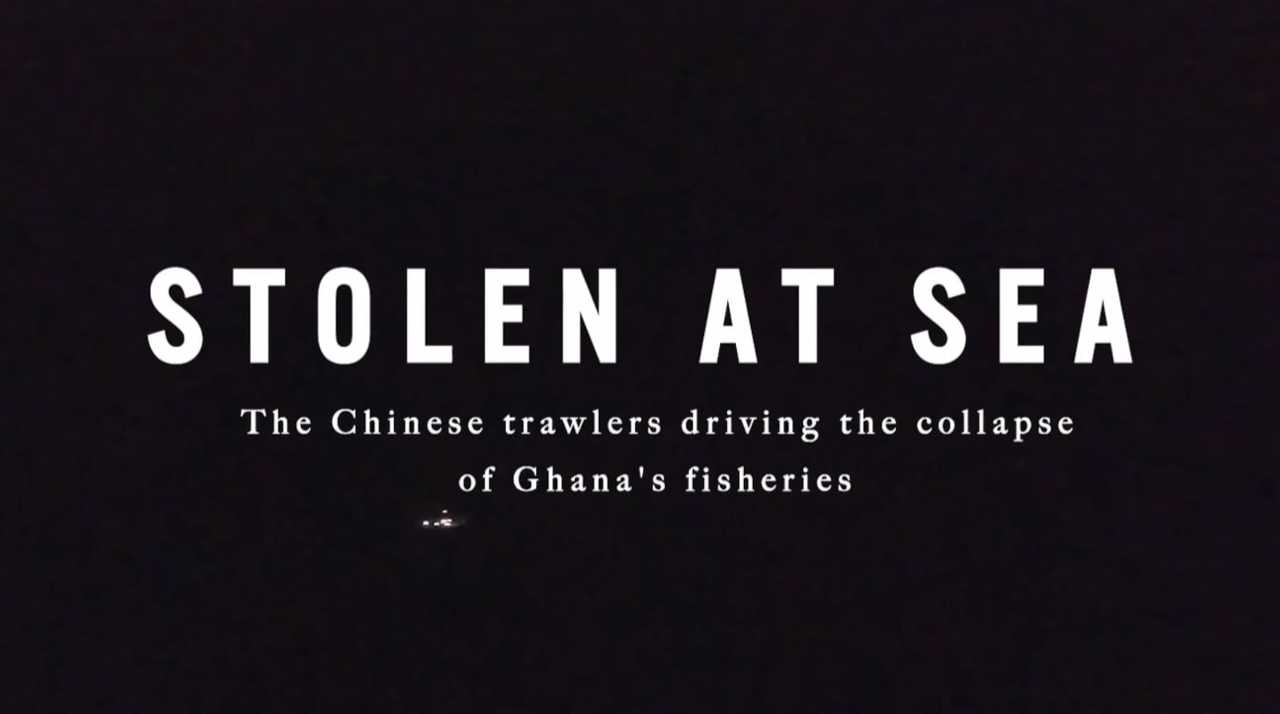
Stolen at Sea: The Chinese Trawlers Driving the Collapse of Ghana’s Fisheries
Stolen at Sea: The Chinese Trawlers Driving the Collapse of Ghana’s Fisheries
‘Saiko’ is a severely destructive form of illegal fishing. Foreign trawlers target the staple catch of Ghanaian canoe fishers and sell this stolen fish back to local communities. Our new report has estimated the true cost of saiko.
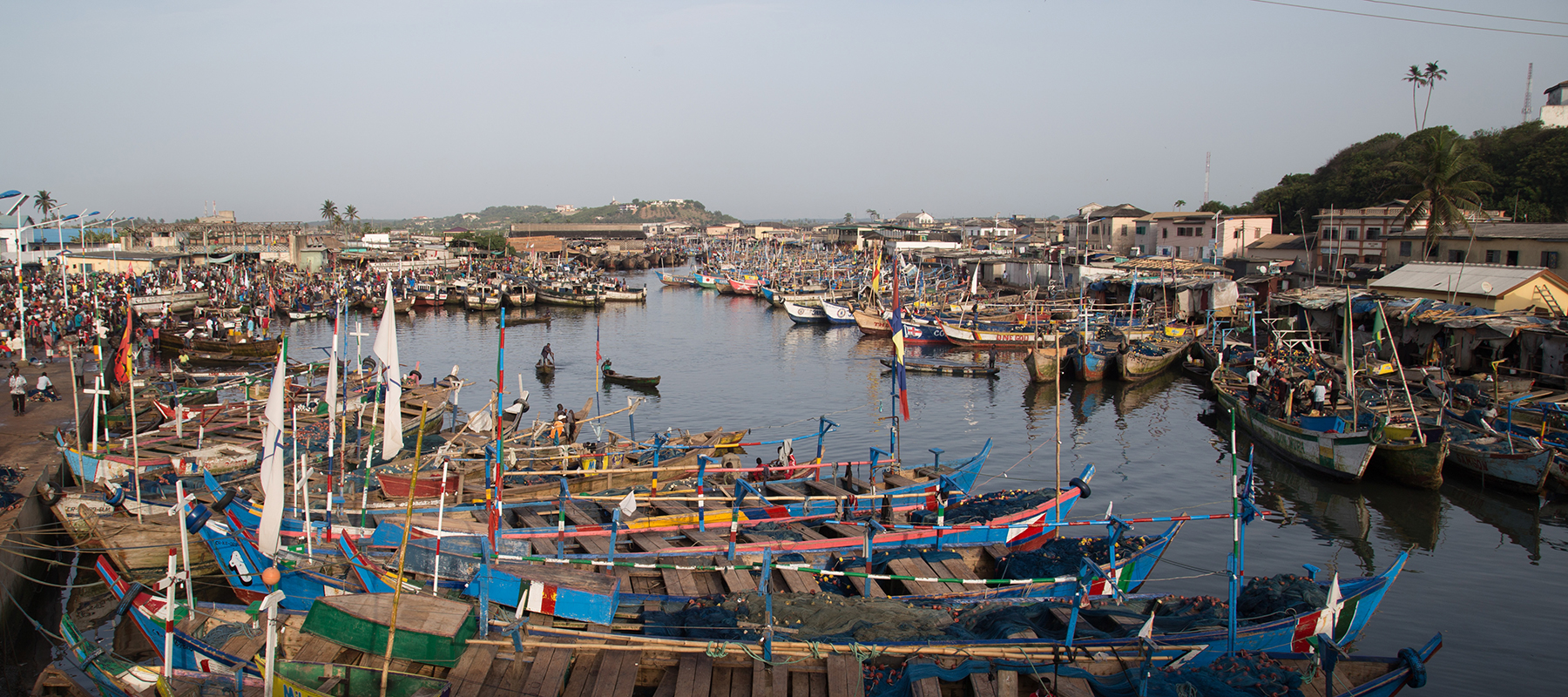
Ensuring social equity and sustainability in Ghana's fisheries
Ensuring social equity and sustainability in Ghana's fisheries
EJF is proud to have the support of the EU delegation in Accra, Ghana, which is now aiding a three-year project to secure sustainable fisheries in the country.
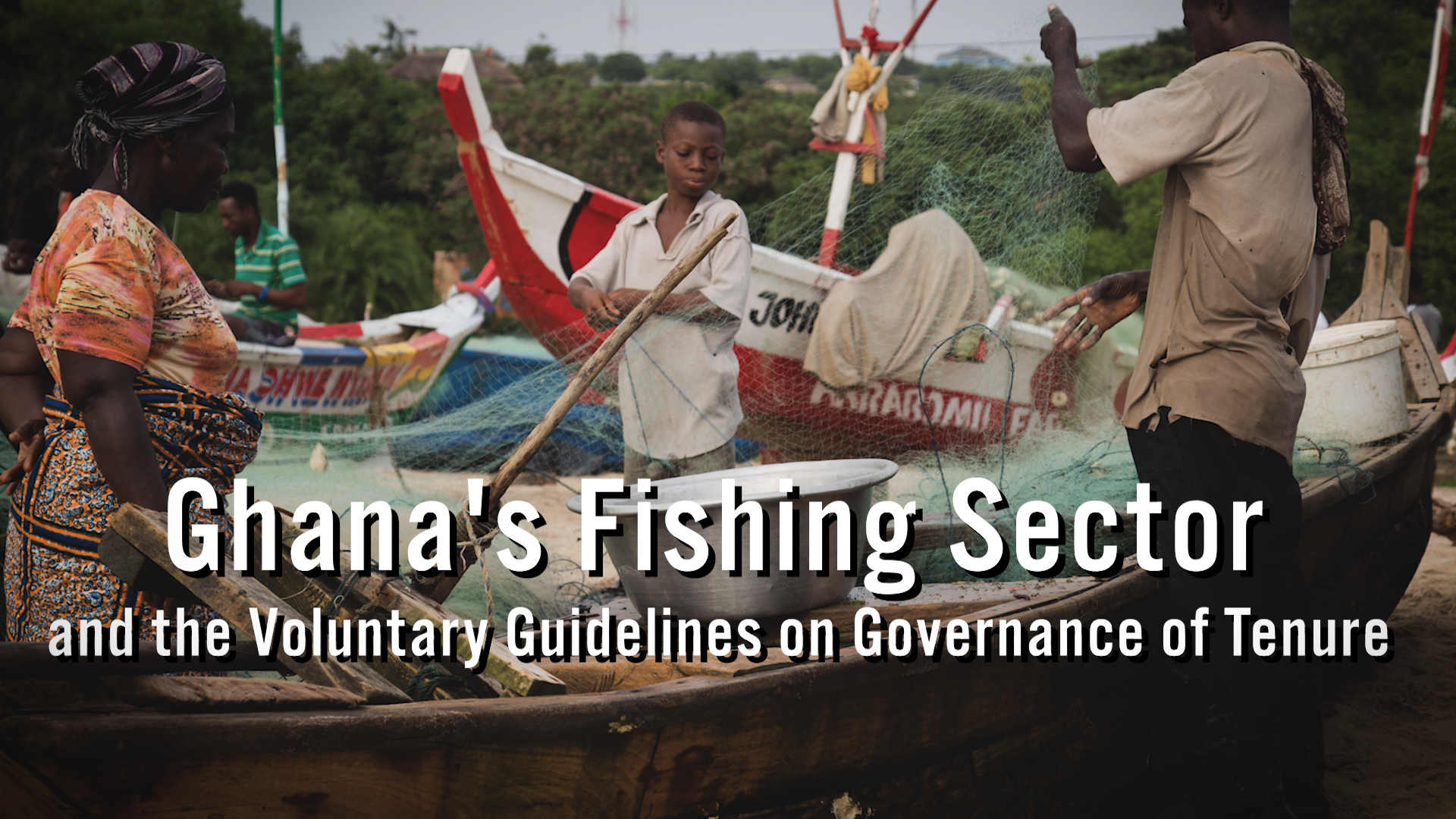
Ghana’s Fishing Sector and the Voluntary Guidelines on Governance of Tenure
Ghana’s Fishing Sector and the Voluntary Guidelines on Governance of Tenure
Related Reports
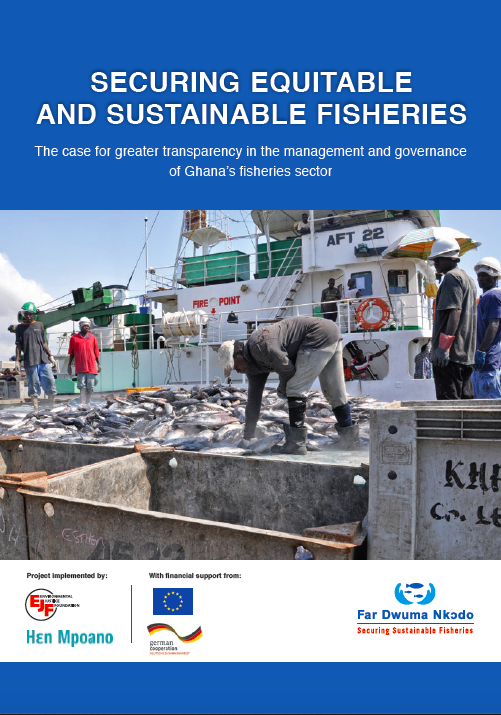
Securing equitable and sustainable fisheries: The case for greater transparency in the management and governance of Ghana’s fisheries sector
Securing equitable and sustainable fisheries: The case for greater transparency in the management and governance of Ghana’s fisheries sector
- Publication Date 16-01-19
- Type Report
Transparency must be improved to eradicate illegal fishing and prevent the collapse of Ghana’s fishing industry, says a new report from the Far Dwuma Nkɔdo project, which lays out key measures that can be implemented immediately by the government. Transparency is crucial to provide much-needed accountability in a sector facing unprecedented challenges, as fish stocks plunge to their lowest recorded levels.
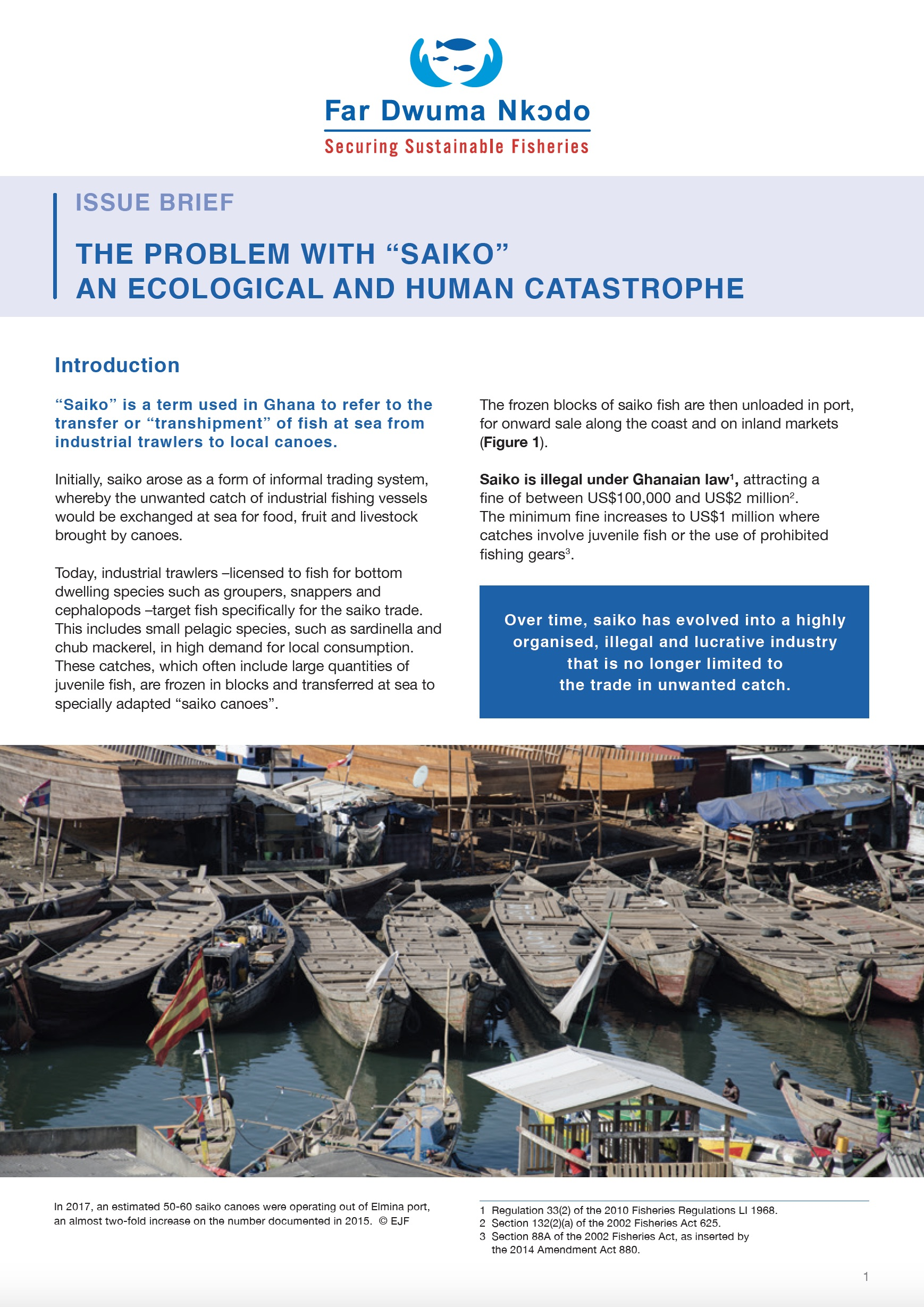
The problem with 'saiko', an ecological and human catastrophe
The problem with 'saiko', an ecological and human catastrophe
- Publication Date 04-06-18
- Type Report
More than 200 villages along Ghana’s coastline rely on fisheries as their primary source of income. However, Ghana's small pelagic fishery, crucial for food security and livelihoods, is on the brink of collapse following decades of over-exploitation. The illegal practice of 'saiko' fishing - the transhipment of fish at sea from industrial trawlers to local canoes - has had a particularly destructive impact on Ghana’s small pelagic fisheries. This briefing looks at the scale of the practice and its impacts on livelihoods, food security and sustainability.
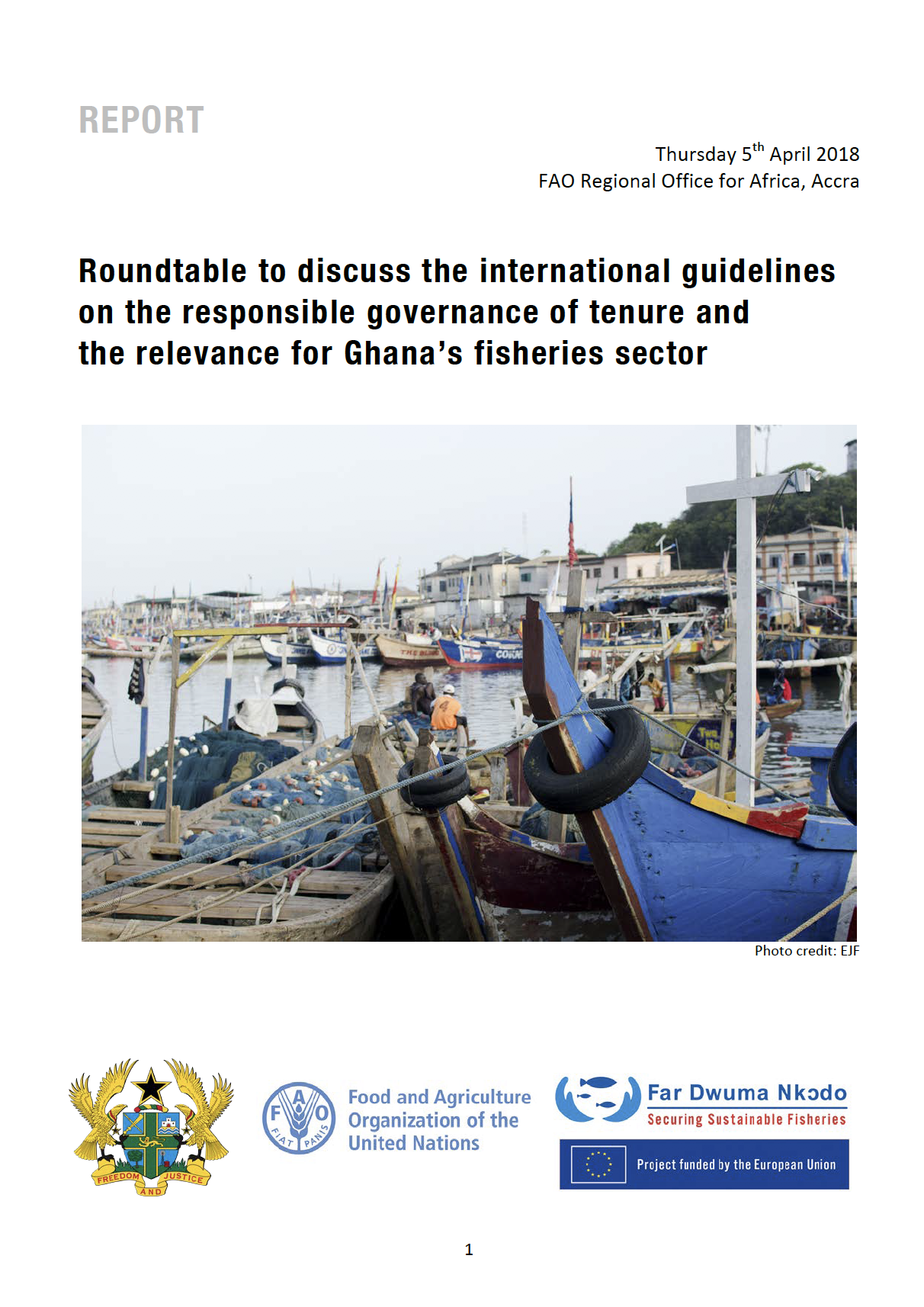
Roundtable to discuss the international guidelines on the responsible governance of tenure and the relevance for Ghana’s fisheries sector
Roundtable to discuss the international guidelines on the responsible governance of tenure and the relevance for Ghana’s fisheries sector
- Publication Date 16-07-18
- Type Report
In the context of the on-going national reform of the fisheries law framework, the Environmental Justice Foundation, Hen Mpoano and the UN Food and Agriculture Organization organised a roundtable to address the challenges faced by Ghana's small-scale fisheries sector. The report summarises the discussions on how the implementation of the Voluntary Guidelines on the Responsible Governance of Tenure of Land, Fisheries and Forests in the Context of National Food Security in Ghana will help promote and maintain responsible governance of tenure of fisheries resources.
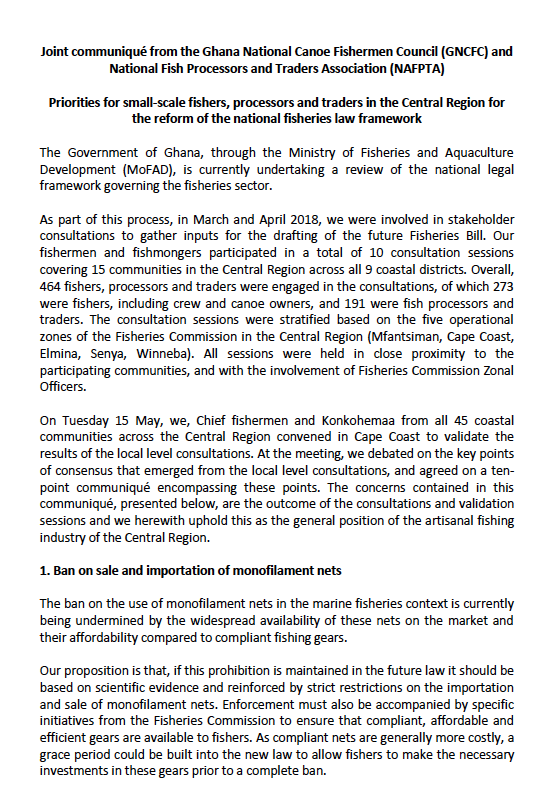
Joint communiqué from the Ghana National Canoe Fishermen Council and National Fish Processors and Traders Association
Joint communiqué from the Ghana National Canoe Fishermen Council and National Fish Processors and Traders Association
- Publication Date 02-07-18
- Type Report
Ghana is currently undergoing a review of its national fisheries law framework, and small-scale fishers, fish traders and processors – represented by the Ghana National Canoe Fishermen Council and the National Fish Processors and Traders Association – presented a ten-point communiqué to the Ministry of Fisheries and Aquaculture Development.
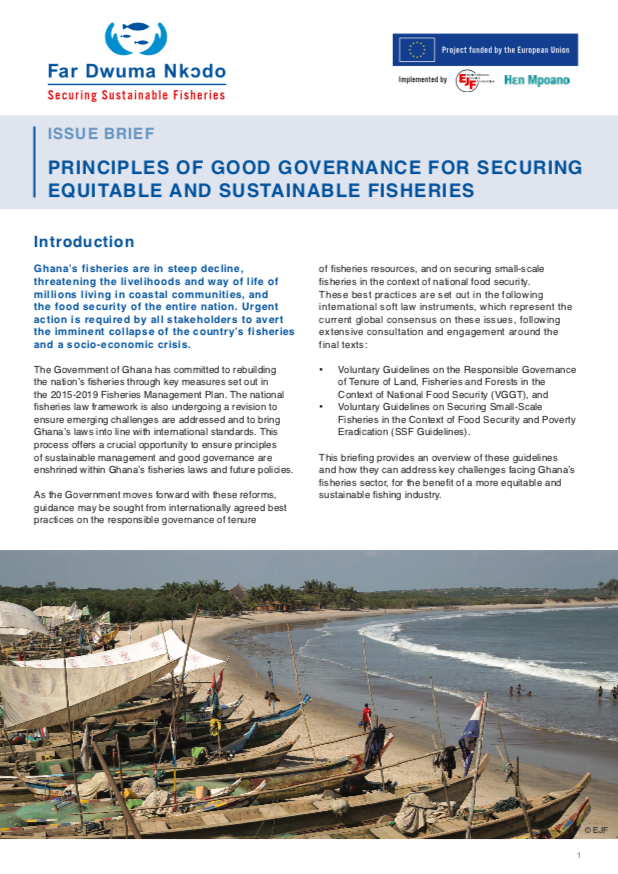
Principles of good governance for securing equitable and sustainable fisheries
Principles of good governance for securing equitable and sustainable fisheries
- Publication Date 09-04-18
- Type Report
The Government of Ghana has committed to rebuildingthe nation’s fisheries through key measures set out inthe 2015-2019 Fisheries Management Plan. The nationalfisheries law framework is also undergoing a revision toensure emerging challenges are addressed and to bringGhana’s laws into line with international standards. Thisprocess offers a crucial opportunity to ensure principlesof sustainable management and good governance areenshrined within Ghana’s fisheries laws and future policies.
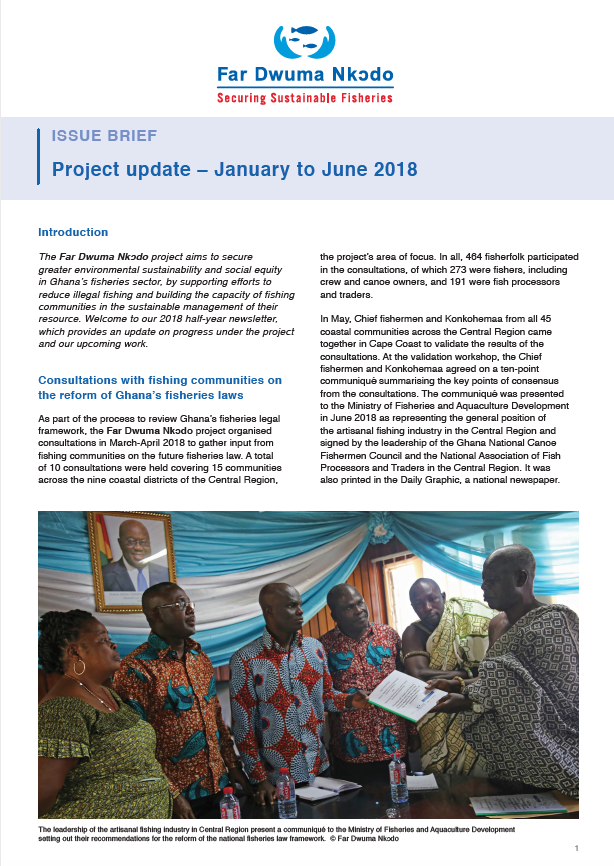
Far Dwuma Nkodo Project Update January to June 2018
The Far Dwuma Nkɔdo project is implemented by EJF and Hen Mpoano, with funding from the EU. The project aims to secure greater environmental sustainability and social equity in Ghana’s fisheries sector, by supporting efforts to reduce illegal fishing and building the capacity of fishing communities in the sustainable management of their resource.
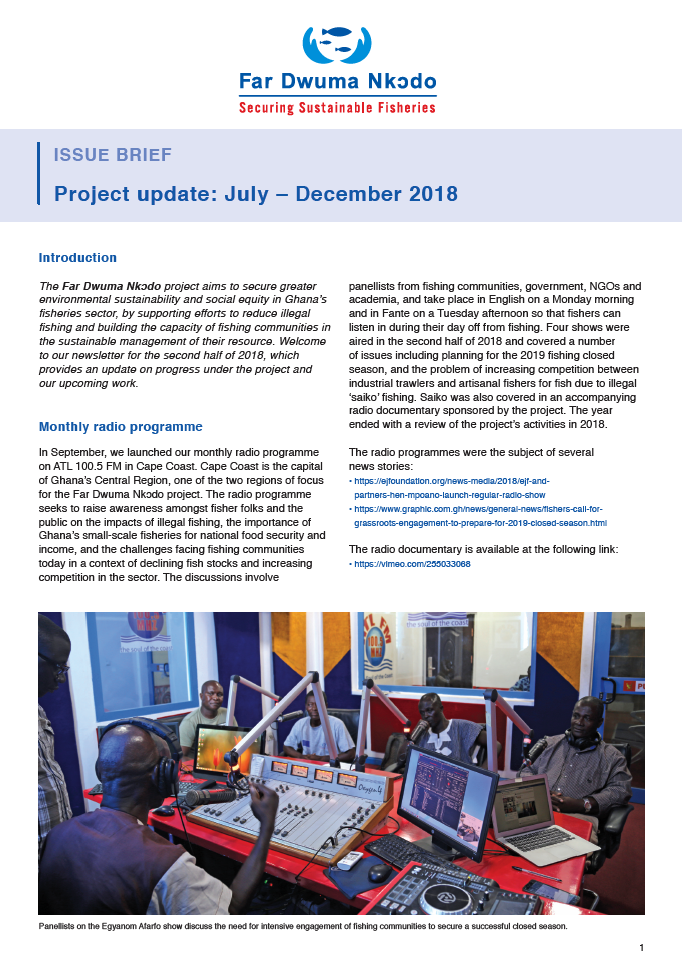
Far Dwuma Nkodo project update: July – December 2018
The Far Dwuma Nkɔdo project is implemented by EJF and Hen Mpoano, with funding from the EU. The project aims to secure greater environmental sustainability and social equity in Ghana’s fisheries sector, by supporting efforts to reduce illegal fishing and building the capacity of fishing communities in the sustainable management of their resource.
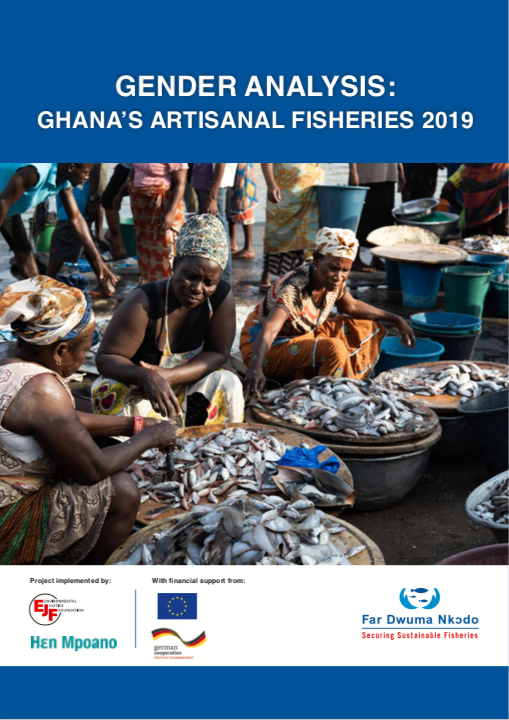
Gender Analysis: Ghana's Artisanal Fisheries 2019
Women play a vital part in Ghana's fisheries as business owners and fishmongers, yet have little say against the illegal fishing methods that are damaging their livelihoods. This gender report, co-authored by Hen Mpoano and EJF under the Far Dwuma Nkɔdo project, provides a close look at the gender dynamics of the artisanal fisheries sector, and makes recommendations to further empower women. It calls for the strengthening of women's organisations and the provision of leadership training, to build towards greater gender equity.
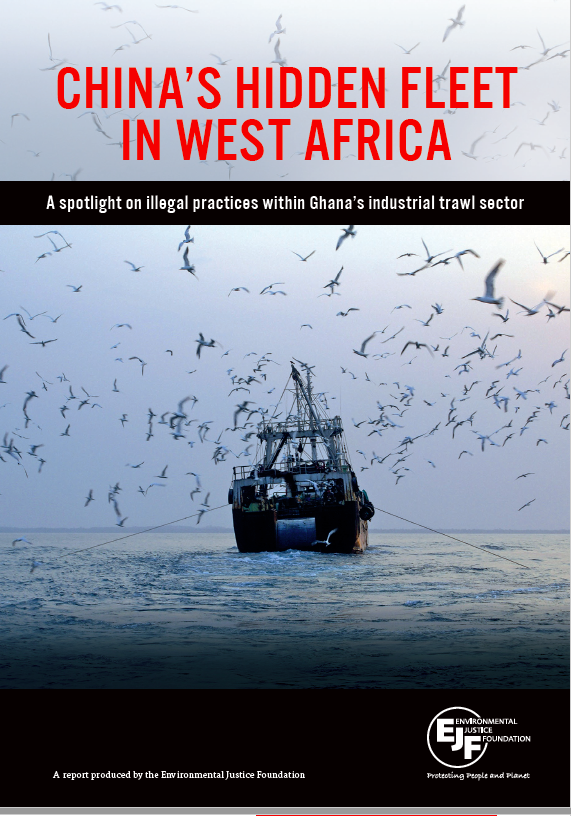
China’s hidden fleet in West Africa: a spotlight on illegal practices within Ghana’s industrial trawl sector
China’s hidden fleet in West Africa: a spotlight on illegal practices within Ghana’s industrial trawl sector
- Publication Date 11-10-18
- Type Report
Around 90% of Ghana’s industrial fishing fleet is linked to Chinese ownership, this report reveals. This is despite the fact that Ghana’s laws clearly forbid any foreign ownership or control of vessels flying its flag. The Chinese and Ghanaian governments must now work together to eradicate the illegal fishing practices which are rife in Ghana’s industrial fleet, improve transparency and sanction those contravening ownership laws.
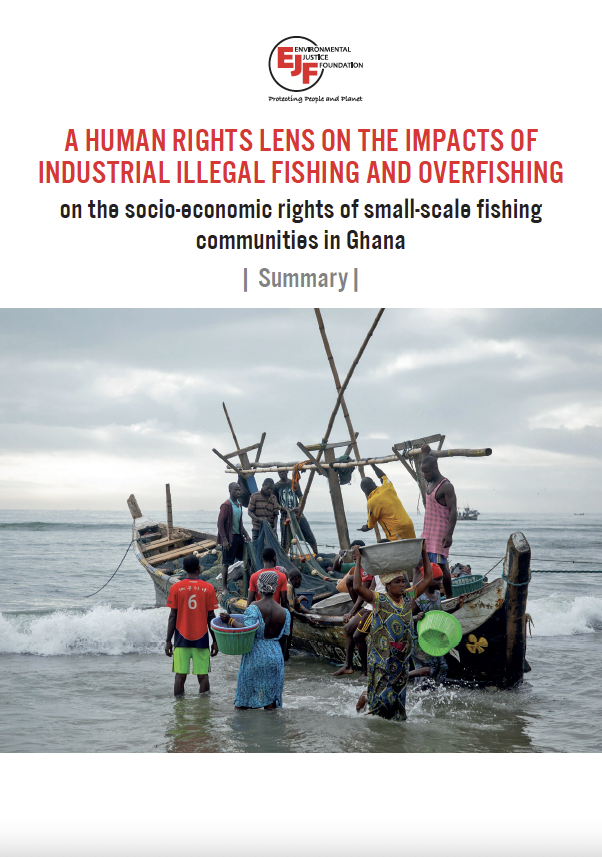
Summary: A human rights lens on the impacts of industrial illegal fishing and overfishing on the socio-economic rights of small-scale fishing communities in Ghana
Summary: A human rights lens on the impacts of industrial illegal fishing and overfishing on the socio-economic rights of small-scale fishing communities in Ghana
- Publication Date 17-08-21
- Type Report
This is a summary of EJF's report "A human rights lens on the impacts of industrial illegal fishing and overfishing on the socio-economic rights of small-scale fishing communities in Ghana", showing that the basic human rights of Ghana’s fishing communities, including the right to adequate food, adequate standard of living and just working conditions, are under threat.
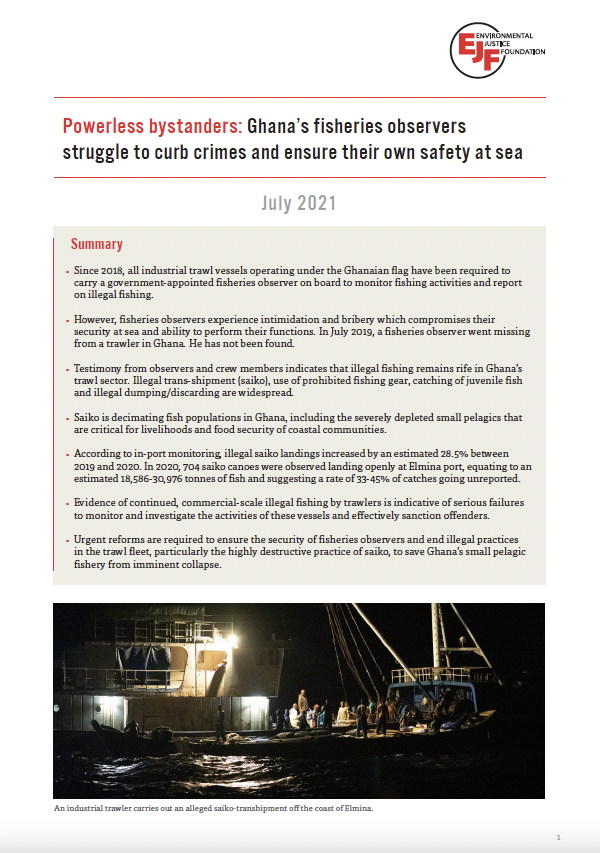
Powerless bystanders: Ghana’s fisheries observers struggle to curb crimes and ensure their own safety at sea
Powerless bystanders: Ghana’s fisheries observers struggle to curb crimes and ensure their own safety at sea
- Publication Date 07-07-21
- Type Report
This briefing reveals that Ghanaian fisheries observers are bribed and threatened at sea, conditions that have enabled rampant illegal fishing in Ghana’s waters.
